|

HOME |
ABOUT | INDEX |
NEWS |
FACEBOOK |
CONTACT
SENIORS
Elders
| Aging Issues | Retirement
SAGE National
LGBTQ Elder Hotline
877-360-5428
Aging as LGBTQ
"I wanna see more queer and trans
folks making it into their elder years,
surrounded by community and love. And
also, I wanna be a cutie elder queer.
Still over-blushing, still protesting,
still laughing, still raging, still
trying to keep plants alive, still
learning, still missing a patch of hair
when I shave, still curious, still
learning to pickle, still verbose, still
real radical."
-Yalla
Rozan
LGBTQ elders face many challenges as
they age. A lifetime of discrimination,
lost wages, lack of family recognition,
and more add up to create substantial
difficulties for most LGBTQ seniors.
America’s population is ageing: by 2050,
the number of people over the age of 65
will double to 83.7 million (from 43.1
million in 2012). While the public
perception of LGBTQ people is largely
one of a young, affluent community,
there are more than 2.7 million LGBTQ
adults ages 50 or older living in
communities across the country, one in
five of whom are older adults of color.
A new report released in May 2017 by the
Movement Advancement Project (MAP) and
SAGE, Understanding Issues Facing
LGBTQ Older Adults, provides a
snapshot of the demographics of LGBTQ
elders, an aging community that is
diverse in terms of race and ethnicity,
gender, and age.
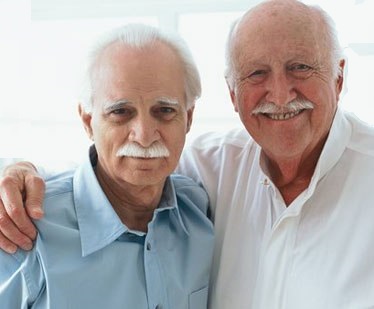
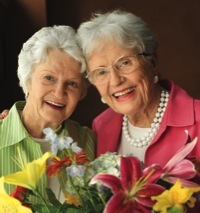
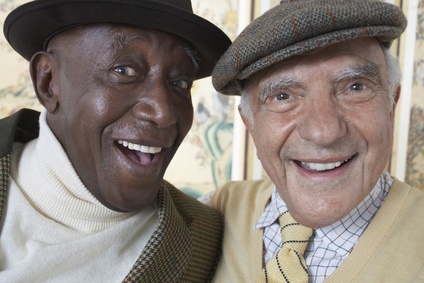
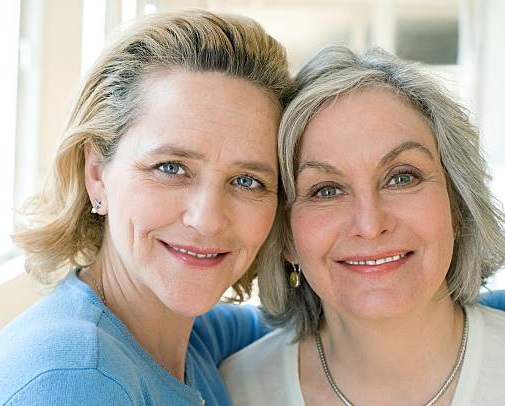
Old Gays Celebrate Pride
Where Do Gays Retire?
LGBTQ Seniors Find Safety and Joy in North Carolina Retirement Village
What it's Like to be a Gay Man at 60
Still Here Bitch: Podcast for Queer Elders with Host Gerry Walker
Mental Health Disparities in Older LGBTQ Populations: Research Roundup
Today Show: Four Famous
Old Gay Guys
Ted Brown: Gay Activist Who Spent 50
Years Fighting for LGBTQ Rights
AARP: LGBTQ Pride
At Age 90, Kenneth Felts Comes Out to
His Family
LGBTQ
Seniors: The Joy of Being Out
Coming Out Later in Life:
37 Years Married to a Man, Divorced, Fell in Love with a Woman
Frightening and Encouraging: Being an
Older LGBTQ Person
Ageism Takes Heavy Toll on LGBTQ Seniors
Info: LGBTQ
History
Gay and Bisexual Men Enjoy Active Sex Lives in Their 70s, New Study Reveals
 
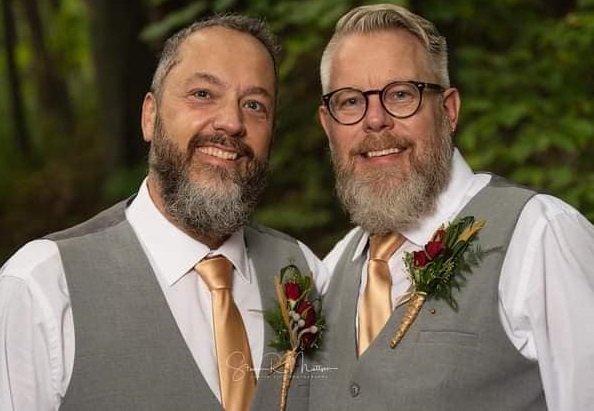
The report details the many challenges
facing LGBTQ older people as they age.
Health and wellbeing, economic security,
and social connections are among the
cornerstones for successful ageing, yet
these are areas in which many LGBTQ
elders face substantial
barriers stemming from current
discrimination as well as the
accumulation of a lifetime of legal and
structural discrimination, social
stigma, and isolation.
The report offers high-level
recommendations for addressing key
disparities facing LGBTQ older adults
including:
--Passing comprehensive employment and
housing nondiscrimination protections
prohibiting discrimination based on
sexual orientation and gender identity.
--Ensuring that all senior housing,
assisted living, and nursing homes have
explicit nondiscrimination policies and
train staff on competently serving LGBTQ
elders.
--Revising federal and state programs to
recognize the relationships of same-sex
couples in which one partner died before
the freedom to marry became available.
--Designating LGBTQ elders as an
underserved population within the Older
Americans Act and within the Department
of Health and Human Services, allowing
government agencies to more easily
target services
--Passing the Restoration of Honor Act
to make veterans discharged because of
their sexual orientation or gender
identity eligible for a number of
programs, services, and benefits
available at the state level.
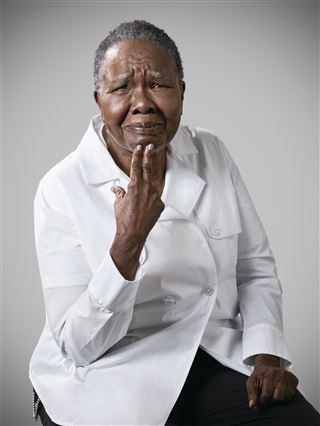
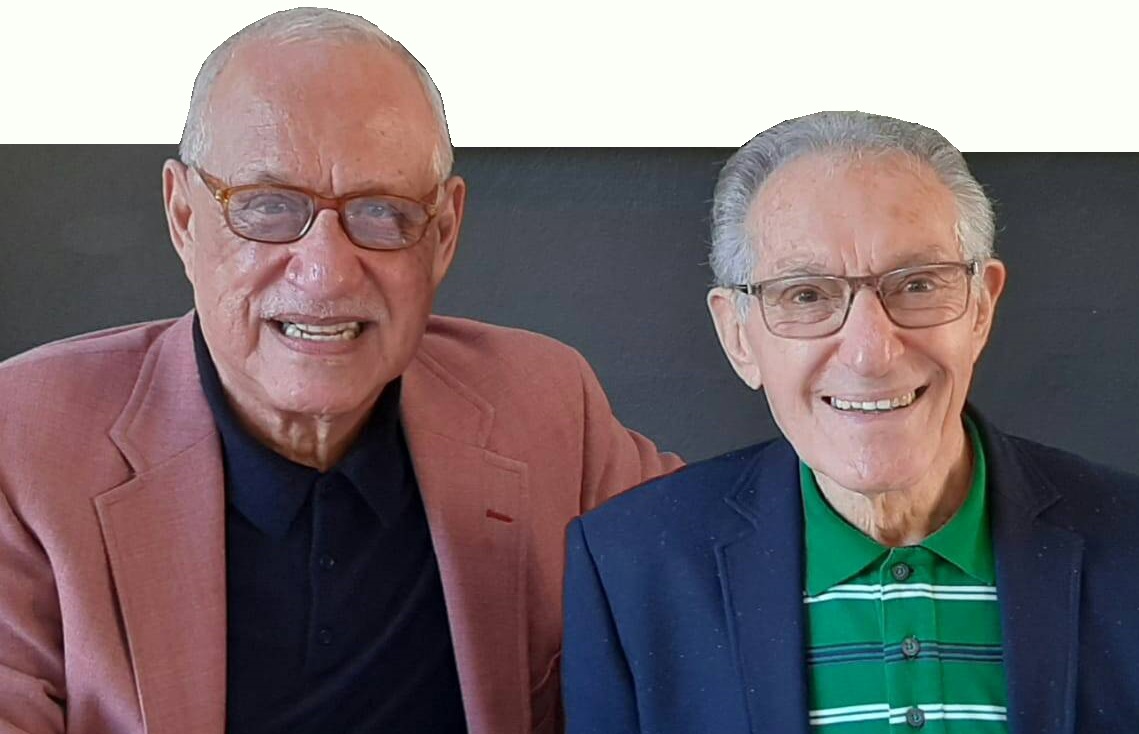
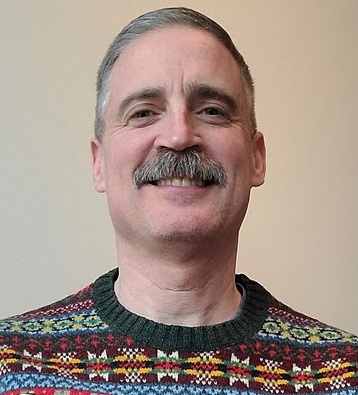
Openly Gay Elders
LGBTQ Seniors Share the Joy of Being Out
What it's Like to be a Gay Man at 60
LGBTQ Seniors Find Safety and Joy in North Carolina
Retirement Village
Stonewall Generation Shares Perspectives
LGBTQ Elders Share Words of Advice and Wisdom
LGBTQ Celebs in Their 50s Who Are Getting Better With
Age
Here’s What Happened for Older Gay Men in 2022
Social Security Survivor's Benefits
for Same-Sex Partners
At the Age of 90, Kenneth Felts Comes Out
to His Family
LGBTQ Seniors: The Joy of
Being Out
Gay Irish Man Shares the
Joys of Growing Old as a Queer Person
Ann
Willoughby and Barb Goldstein
Ann
Willoughby and Barb Goldstein have been together for 43 years and they still
celebrate Pride
In 2012, as same-sex-marriage cases swarmed state and federal courts in the
lead-up to the Obergefell v. Hodges decision, North Carolinians Ann Willoughby
and Barb Goldstein did their part to make marriage equality the law of the land.
The longtime companions were involved with the Campaign for Southern Equality,
and with two other couples tried to secure a marriage license at City Hall in
Durham, “knowing we’d be turned down.” The action earned headlines in the
Raleigh News & Observer, along with a large photo of the pair on the front page.
At that time, they had already been together 30 years.

Ann Willoughby and Barb Goldstein: Together for 43 Years
The couple met in 1981 in Saginaw, Michigan, where Willoughby was the volunteer
coordinator for a local hospice and Goldstein was offering communication skills
workshops for doctors and nurses. Ann was recently divorced and had five kids,
three of whom were still teens at home. “I had always been gay, Ann had always
been hetero,” Barb says. It took a few months before their relationship moved
“beyond platonic.”
A few years later, they moved to North Carolina to both attend the master’s
degree program at the UNC School of Social Work. They spent the rest of their
careers in various areas of psychotherapy. Their advocacy for marriage equality
made them a “poster couple” for the cause, one proving that same-sex
relationships are as long-lived as straight ones.
“When we met, I was 35 and she was 46. We’re now 78 and 89.” Not content
to wait for their home state to grant them the right to marry, the couple
traveled to New York to mark 30 years together with a wedding. In 2025,
Willoughby and Goldstein celebrated two anniversaries: 13 years married and 43
years together.
Over their time together, Willoughby and Goldstein have seen lots of wins and
losses in the fight for LGBTQ rights, from the AIDS crisis, to Don’t Ask, Don’t
Tell and its repeal, to marriage equality.
Her Partner of 45 Years Developed Alzheimer’s: She's Sharing Their Story
AARP: Caregiving in the LGBTQ Community
LGBTQ Seniors Share the
Joy of Being Out
Old Gays Celebrate Pride
78-Year-Old Man and 13-Year-Old Boy Talk
About Being Gay
LGBTQ Elders
Show
Resiliency
Despite
Barriers
Advocate:
No One Will Care for LGBTQ Seniors But
Themselves
Then and Now: Older Lesbians Share Their
Stories
Life After
Fifty for a
Gay Man
At 60 Years Old, I Became
Invisible: Getting Old as a Gay Man
Stinks
Gail and Audrey: Unexpected Love Story
Things
Older Adults Can Do to Stay Connected
and Overcome Isolation
Advocate: Politics of Caring for Our
Queer Elders
Bisexual Elders
Social Security Benefits for
Same-Sex Couples
In a historic ruling, in November 2021, same-sex
partners and spouses can now claim Social Security
survivors’ benefits. In 2018, Lambda Legal sued the
Social Security Administration over policies that
prevented surviving partners from receiving Social
Security benefits.
Under the policy, a surviving partner could only apply
for benefits if they had been married for nine months
before their partner’s death. However, in states where
gay marriage had recently been legalized, this was
impossible. Plus, in the past, many surviving partners
couldn’t file for benefits because their states
prohibited them from being married at all.
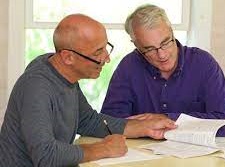
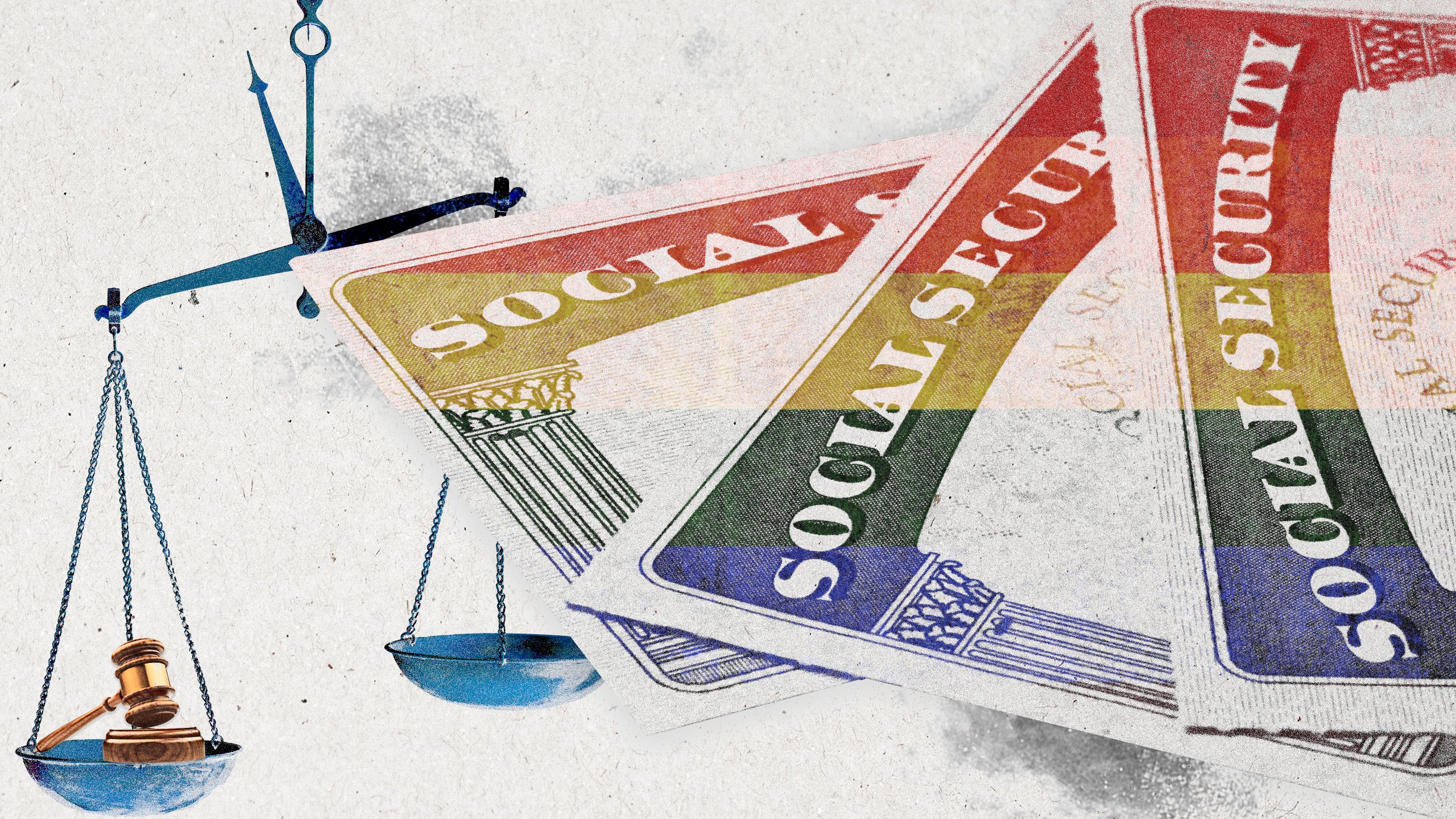
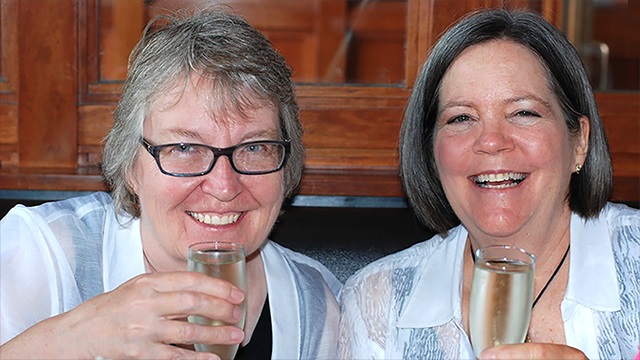
Lambda Legal filed two lawsuits on behalf of same-sex
couples who met either of these parameters. In 2020, the
federal district courts in Arizona and Washington ruled
the policies of excluding same-sex couples from
survivors’ benefits were unconstitutional. But
then-President Donald Trump appealed both cases.
On Nov. 1, 2021, the Justice Department and Social
Security Administration, under the leadership of
President Joe Biden, dismissed the appeals. Now, there
is no “waiting period” to qualify for survivors’
benefits and same-sex partners will have equal access to
Social Security survivors’ benefits.
“This is a historic development with immense
implications: survivor’s benefits are now equally
available to everyone, including potentially thousands
of same-sex partners who could not marry their loved
ones and may have thought it was futile to apply,”
Lambda Legal Counsel Peter Renn said in a statement on
the Lambda Legal website.
Lambda Legal Secures Social Security Survivor's Benefits
for Same-Sex Partners
Social Security Survivors Benefits Available to Same-Sex
Partners Thanks to Historic Ruling
Backstory: Same-Sex Spouses Win Equal Access to Social
Security Survivor Benefits
Same-Sex Couples Eligible for Social Security Survivors
Benefits
Social Security Benefits for Same-Sex Couples
Backstory: Tucson Man Demands Social Security Benefits
for Same-Sex Spouses Nationwide
Same-Sex Partners Now Able to Access Social Security
Survivors Benefits
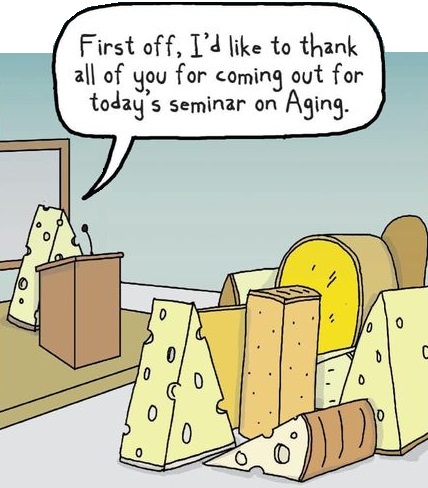
Old Gays Celebrate Pride
Ann Willoughby and Barb Goldstein: Together for 43 Years
78-Year-Old Man and 13-Year-Old Boy Talk About Being Gay
Still Here Bitch: Podcast for Queer
Elders with Host Gerry Walker
Gay Grandpas
Have the
Sweetest
Holiday
Message
What it's
Like to be a
Gay Man at
60
Gay Men More
Sexually
Active in
Old Age,
Study
Reveals
Jay-Z’s Mom
Gloria
Carter
Marries
Longtime
Girlfriend
Celebrities
Who Came Out
Publicly
After 60
Lady Gaga and Liza Minnelli at Oscars
2022
“The Old
Gays”:
Teaching us
How to Get
the Most Out
of Life
Gay Authors
Whose
Stories Show
Us How to
Age
Gracefully
Lady Gaga
and Liza
Minnelli’s
Oscars
Moment Goes
Viral
Never Too
Late: I
Started
Transitioning
at 58

UK's First
Dedicated Hospice for LGBTQ People
The Sussex
Beacon has announced that it will become the UK's first
dedicated hospice for LGBTQ people by aiming to combine
inclusive care with specialist HIV care.
For more than three decades, the charity has been
offering palliative and end-of-life support to people
living with HIV, with it recently expanding its service
to the wider LGBTQ community.
“We are enormously excited by what will become a new
chapter for The Sussex Beacon,” said Rachel Brett, CEO,
in a statement. “The LGBTQ community built The Beacon,
and now we will be giving it back, stronger and more
inclusive than ever. It was originally founded to offer
care in a safe, accepting space for people dying with
AIDS-related illnesses.
Thanks to advances in HIV treatment, our focus has moved
to ensure that people across local communities are
getting the help and support they need."
[Source: Gay Star News, UK, August 2025]
Openly Gay Elders
LGBTQ Seniors Share the Joy of Being Out
What it's Like to be a Gay Man at 60
LGBTQ Seniors Find Safety and Joy in North Carolina
Retirement Village
Stonewall Generation Shares Perspectives
LGBTQ Elders Share Words of Advice and Wisdom
LGBTQ Celebs in Their 50s Who Are Getting Better With
Age
Here’s What Happened for Older Gay Men in 2022
Social Security Survivor's Benefits
for Same-Sex Partners
At the Age of 90, Kenneth Felts Comes Out
to His Family
LGBTQ Seniors: The Joy of
Being Out

Seemingly
Harmless Habits That May Increase Your Risk Of Dementia
Your Risk Of Dementia...
These common behaviors could be affecting your brain
health....
Dementia is the loss of memory, language,
problem-solving and other abilities that require
thinking. It is often caused by Alzheimer’s disease, and
mainly affects those 65 and older. Unfortunately,
dementia can be severe enough that it interferes with
daily life, and those who have dementia often require
additional care.
“Dementia is a group of conditions characterized by
impairment of at least two brain functions, such as
judgment and memory loss,” explained Blair Steel, a
psychologist at Carrara Treatment, Wellness & Spa.
“Symptoms of dementia include forgetfulness, limited
social skills and impairment in thinking that interferes
with daily functioning.”
So what causes dementia? Your age, family history, race
and ethnicity, heart health and history of a traumatic
brain injury are all factors that increase your risk of
developing the condition. But another big category is
lifestyle habits. So while you can’t control your
genetics, there are a few seemingly harmless behaviors
you may be doing that can increase your risk.
Openly Gay Elders
AARP: Caregiving in the LGBTQ Community
Where Do Gays Retire?
Mental Health Disparities in Older LGBTQ Populations: Research Roundup
Today Show: Four Famous
Old Gay Guys
LGBTQ
Seniors Tell Their Stories
Her Partner of 45 Years Developed
Alzheimer’s: She's Sharing Their Story
Now You See
Me: Film
About Group
of Elder
Lesbians
LGBTQ Aging:
A Question
of Identity
Info: LGBTQ
History
LGBTQ
Seniors Find
Safety and
Joy in North
Carolina
Retirement
Village
Never Have I Ever: Elder Gay Men Having
Fun
Story Corps: Two Retired Vets Celebrate
Love
Advocate:
Portraits of LGBTQ Seniors
Gay Irish Man Shares the Joys of Growing
Old as a Queer Person
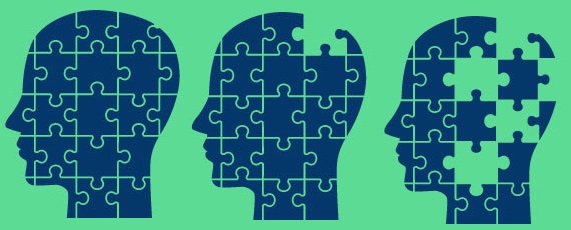
Not moving your body enough or sitting for too
long...
Exercising
― aerobic exercise, especially ― can help reduce
cognitive impairment and dementia risk. Long-term,
regular exercise can affect your brain and your overall
health in a positive way, especially if you’re nearing
60. Getting your body moving daily is something you can
do to decrease your risk of dementia.
Steel said “being inactive does a number on the brain.”
Just like other muscles, a good thing to remember is,
“If you don’t use it, you lose it.”
Not socializing enough...
Social health plays a role in the development of
dementia; an active and socially integrated lifestyle
can protect against the disease. Stimulating the brain
with social interaction is important for everyone,
especially as they age. Though, in the age of social
media, socializing has become a broader term.
“We spend a lot of hours on social media, however this
likely does not stimulate the brain’s experience of
connection as much as socializing in person,” Steel
explained.
Poor social health can overstimulate the body’s stress
response through increased levels of the stress hormone
cortisol, raise blood pressure and decrease blood flow
to vital organs amongst other health issues.
Old Gays Celebrate Pride
What it's Like to be a Gay Man at 60
Story Corps: Two Retired Vets Celebrate
Love
LGBTQ Seniors: The Joy of
Being Out
At Age 90, Kenneth Felts Comes Out to His Family
Stonewall Generation Shares Perspectives
Info: LGBTQ History
Young Gay Illegal: Then and Now
Coming Out Later in Life:
37 Years Married to a Man, Divorced, Fell in Love with a Woman
Elderly Gay Man Recalls His Visit to a
Psychologist in 1948
AARP Pride:
LGBTQ
Advocates
See Hurdles
Ahead
LGBTQ
Seniors Tell Their Stories
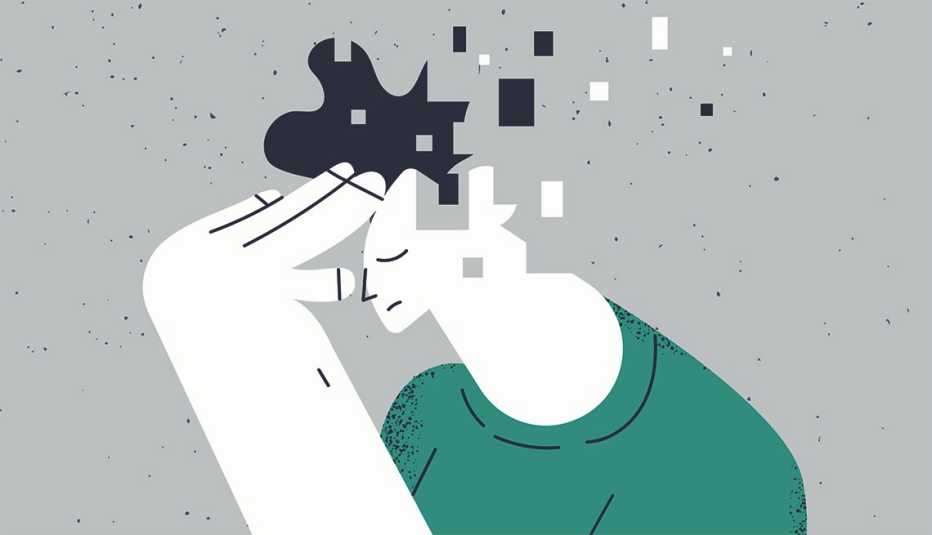
Getting inadequate sleep...
Sleep disturbances and dementia are two common and
significant health problems in older adults. (Let’s face
it, sleep tends to be put on the back burner.) Whether
due to family obligations, work or staying up late on
your phone or watching TV, there’s always something in
the way of adequate sleep.
Unfortunately, sleep patterns in earlier life may
contribute to later problems. If you’re having trouble
sleeping, or not sleeping at all, sleep deprivation
could increase your dementia risk.
“Avoid screens and light after a certain hour and try to
not reach for your phone if your sleep is interrupted,”
Steel suggested. Try unplugging at least 30 minutes
before bed.
Being chronically stressed...
According to the Alzheimer’s Society, stress is linked
to dementia because when you’re stressed and cortisol is
released, it can create problems with your memory. The
negative effects of stress, particularly chronic stress,
on the brain can lead to cognitive decline due to
prolonged elevations of cortisol — which plays an
important role in how your body responds to stress.
Working to reduce your stress through healthy habits can
be key to mitigating this risk. Exercise, creative
activities or hobbies, spending time with loved ones,
meditation, watching a good show or reading a good book
can all help you relax.
Additionally, “try to be flexible with your reactions
and avoid the ‘my way or the highway’ mentality, which
can be common in older adults,” Steel said.
Openly Gay Elders
Ann Willoughby and Barb Goldstein: Together for 43 Years
Her Partner of 45 Years Developed Alzheimer’s: She's
Sharing Their Story
Gay
Retirement
Guide For
Fabulous
LGBTQ
Financial
Planning
AARP Pride:
LGBTQ
Advocates
See Hurdles
Ahead
LGBTQ
Seniors Tell Their Stories
78-Year-Old Man and 13-Year-Old Boy Talk
About Being Gay
Still Here Bitch: Podcast
for Queer Elders with Host Gerry Walker
Finding Joy and Fulfillment After Coming
Out in Your Thirties
50 Years After Stonewall: Stories of
LGBTQ Elders
LGBTQ Seniors Find Safety and Joy in
North Carolina Retirement Village
What it's Like to be a Gay Man at 60
Old Lesbians
Organizing for Change
Video: Silent Pioneers

Consuming excessive amounts of alcohol...
The Alzheimer’s Society also says there’s a specific
type of alcohol-related dementia that is considered
alcohol-related brain damage (ARBD). This is due to the
damage of the brain caused by drinking too much alcohol
on a regular basis, usually over many years.
Those with this type of dementia may have issues like
cooking a meal, remembering things, thinking things
through, and even struggle with more complex tasks like
managing finances.
Eating an unbalanced diet...
Research shows a diet high in ultra-processed foods can
increase dementia risk in adults. While no one’s diet is
perfect, ensuring that the majority of the time you are
sticking with well-balanced, healthy meals can be
extremely beneficial.
Try eating leafy greens, berries, whole grains, beans,
nuts, fish, and healthy fats like olive oil while
limiting red meat, sweets, cheese, butter, and fast and
fried food. These are healthy options that optimize your
brain health.
You can lower your risk of dementia by altering the
habits mentioned above, but you should also speak to a
doctor if you’re struggling with your cognition.
“If you or a loved one is experiencing signs of
dementia, it is important to speak to a doctor and get
an assessment,” Steel said. Your primary care physician
will be able to assess you, and if needed, refer you to
a specialist.
[Source: Sydney Wingfield, Huff Post, Jan 2024]



AARP: Caregiving
in the LGBTQ
Community
Controlling Complications
and Aging Gracefully with HIV
Elder Lesbians Give Advice to Young
Lesbians
Lessons on Resilience From
LGBTQ Elders
Double Lives: LGBTQ Elders
Tell Their Stories
Aging in
Equity: LGBTQ
Elders in
America
Ted Brown:
Gay Activist
Who Spent 50
Years
Fighting for
LGBTQ Rights
LGBTQ Celebs in Their 50s Who Are Getting Better With
Age
Older Lesbians: Keepers of Rich History of the Lives of
Gay Women
Gay Authors Whose Stories
Show Us How to Age Gracefully
Center for
Positive Aging: Resources for Older
LGBTQ Persons
Advocate: Politics of Caring for Our
Queer Elders
Gay Irish Man
Shares the Joys
of Growing Old
as a Queer
Person
Embracing the
Rich Tapestry of
LGBTQ Elderly
Lives
Silent
Pioneers...
As society progresses,
it's crucial to recognize and celebrate the diverse
experiences of all its members. Among the often
overlooked groups are LGBTQ elderly individuals, whose
unique journeys reflect not only the progress made in
LGBTQ rights but also the challenges they continue to
face in their later years.
Many LGBTQ elderly individuals have lived through an era
when being open about one's sexual orientation or gender
identity was fraught with challenges. These silent
pioneers navigated a world that often denied them the
freedom to express their true selves. As a result, they
may have faced discrimination, social isolation, and
even legal persecution.
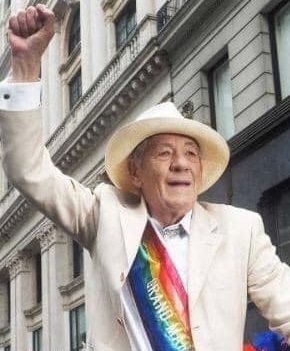
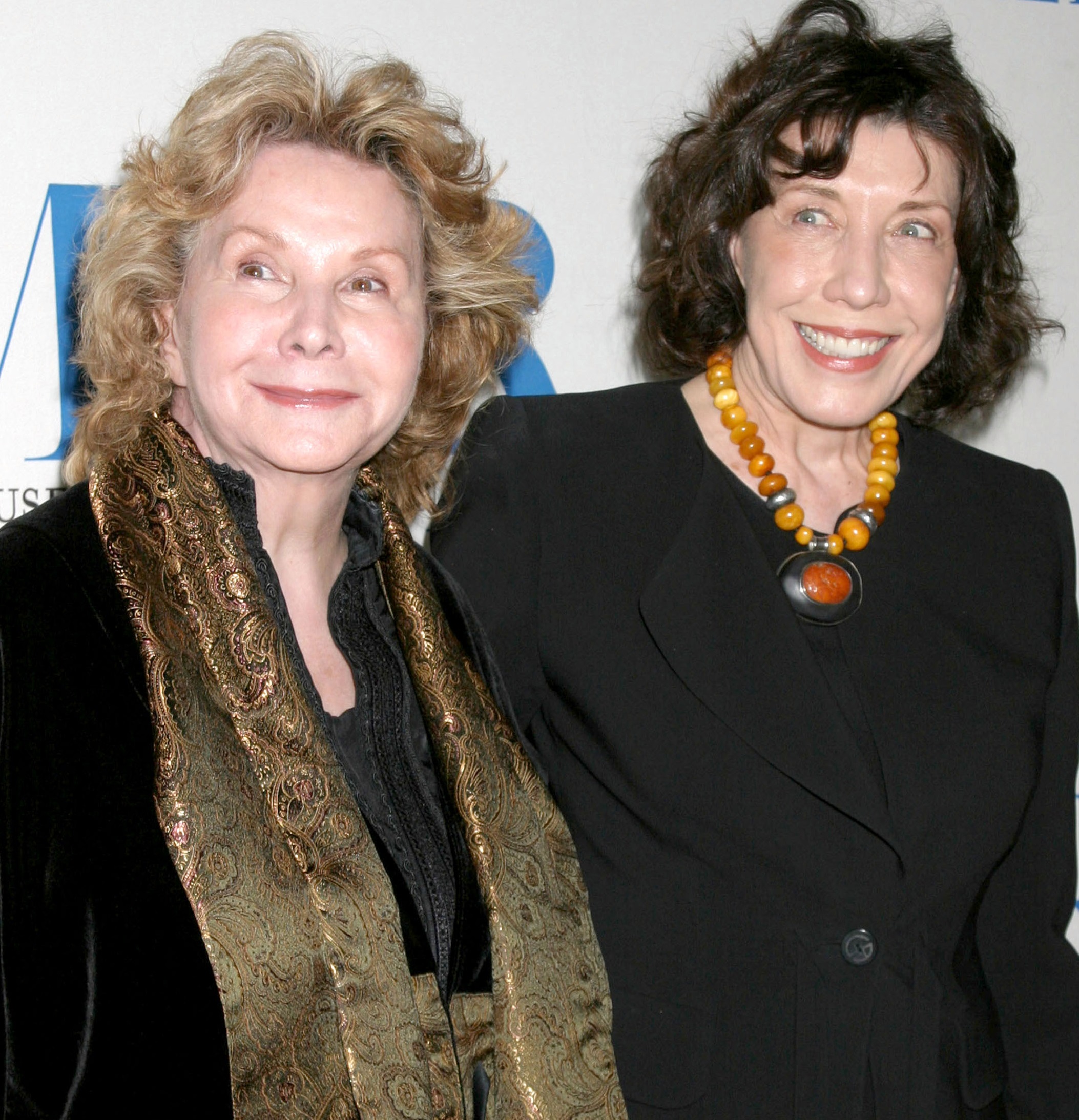
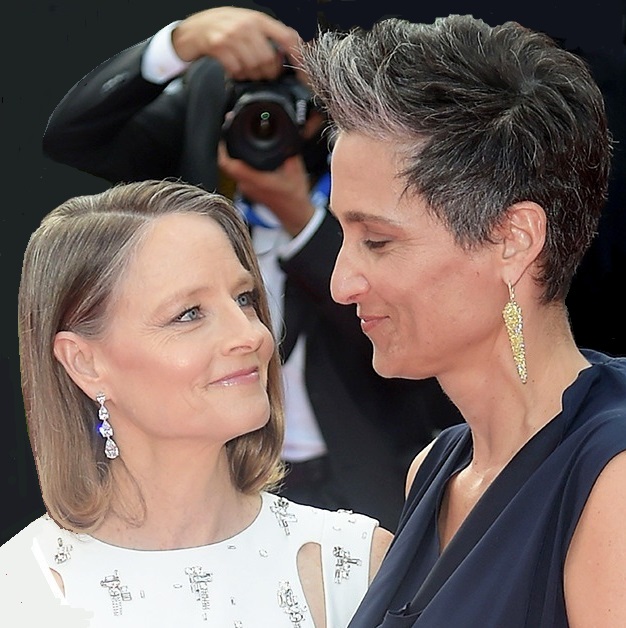
Old Gays Celebrate Pride
Where Do Gays Retire?
LGBTQ Seniors Find Safety and Joy in North Carolina
Retirement Village
Mental Health Disparities in Older LGBTQ Populations: Research Roundup
Today Show: Four Famous
Old Gay Guys
Old Lesbians
Organizing for Change
Video: Silent Pioneers
LGBTQ Seniors Share the
Joy of Being Out
Queer Elders Tell Us
About the Greatest Loves of Their Lives
Aging in
Equity: LGBTQ
Elders in
America
Video Talk: Together for 54 Wonderful
Years
Ted Brown: Gay Activist Who Spent 50
Years Fighting for LGBTQ Rights
Info: LGBTQ
History
Never Too
Late: I
Started
Transitioning
at 58
Resilience
in the Face
of
Adversity...
Despite
these
challenges,
LGBTQ
elderly
individuals
have
demonstrated
remarkable
resilience.
They have
weathered
societal
stigma,
fought for
their
rights, and
paved the
way for the
acceptance
and
understanding
that younger
generations
now
experience
more
readily. The
struggles
they faced
have shaped
their
resilience
and
strength,
contributing
to the
ongoing
fight for
equality.
Unique
Health
Concerns...
LGBTQ
elderly
individuals
often face
unique
health
concerns
related to
their
experiences
and the
historical
context in
which they
lived. Many
may have
postponed
seeking
healthcare
due to fear
of
discrimination,
leading to
delayed
diagnoses
and
treatment.
Consequently,
the LGBTQ
elderly
community
may
experience
higher rates
of certain
health
issues, such
as mental
health
concerns and
chronic
conditions.
Building
Inclusive
Spaces...
Creating
inclusive
spaces for
LGBTQ
elderly
individuals
is crucial
to
addressing
their
specific
needs. This
includes
healthcare
environments
that are
sensitive to
diverse
identities,
support
groups
tailored to
their
experiences,
and housing
options that
prioritize
inclusivity
and safety.
Building a
community
that
respects and
acknowledges
their unique
stories
fosters a
sense of
belonging
and
connection.

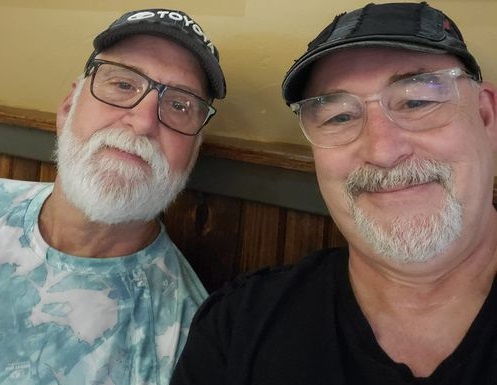
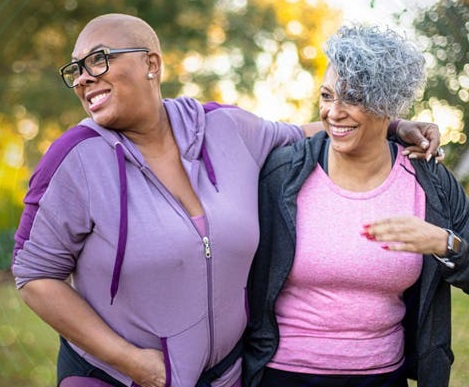
Openly Gay Elders
What it's Like to be a Gay Man at 60
Never Have I Ever: Elder Gay Men Having
Fun
Ann Willoughby and Barb Goldstein:
Together for 43 Years
Her Partner of 45 Years Developed
Alzheimer’s: She's Sharing Their Story
78-Year-Old Man and 13-Year-Old Boy Talk
About Being Gay
Info:
LGBTQ Retirement Strategies
Elder Lesbians Try New Lesbian Slang
“Your Love” Film Puts
Queer South Asian Elders Front and
Center in a Beautiful Way
Kenneth Felts On Coming
Out At 90 Years Old
Queer Elders Tell Us
About the Greatest Loves of Their Lives
Williams
Institute Report: LGBTQ Aging
Still Here Bitch: Podcast
for Queer Elders with Host Gerry Walker
Advocate:
Portraits of LGBTQ Seniors
Video Talk: Old Gays Share Their Coming
Out Stories
Importance of Intergenerational
Connections...
Fostering intergenerational connections
is key to breaking down stereotypes and
building understanding between different
age groups within the LGBTQ community.
By sharing their stories, experiences,
and wisdom, LGBTQ elderly individuals
can provide valuable insights to younger
generations, creating a more cohesive
and supportive community.

Legal Protections and Advocacy...
Ensuring legal protections for LGBTQ
elderly individuals is an essential
aspect of fostering an inclusive
society. This includes protections
against discrimination in healthcare,
housing, and other services. Advocacy
efforts must continue to address the
specific needs of this community and
work towards a future where no one faces
discrimination based on their sexual
orientation or gender identity.
Recognizing and celebrating the lives of
LGBTQ elderly individuals is an integral
part of embracing diversity within our
society. By acknowledging their
struggles, resilience, and
contributions, we can build a more
inclusive and compassionate world for
everyone, regardless of age, sexual
orientation, or gender identity. It is
through understanding and unity that we
can ensure a brighter and more equitable
future for all members of the LGBTQ
community, regardless of their stage in
life.
Old Gays Celebrate Pride
Jay-Z’s Mom Gloria Carter Marries
Longtime Girlfriend
Frightening and Encouraging: Being an Older LGBTQ Person
“Your Love” Film Puts Queer South Asian
Elders Front and Center in a Beautiful Way
Queer Elders and Lessons
Learned: AIDS Crisis and Coronavirus
92 Year Old Granddad Comes
Out: Tells 70 Year Old Love Story
Sir Ian McKellen: Pride in
Ageing Program to Help LGBTQ Seniors
Shatzi
Weisberger:
What I Want
for My 90th
Birthday
SAGE
Project:
True Story
Behind the
Stonewall
Rebellion
Gay Irish Man Shares the
Joys of Growing Old as a Queer Person
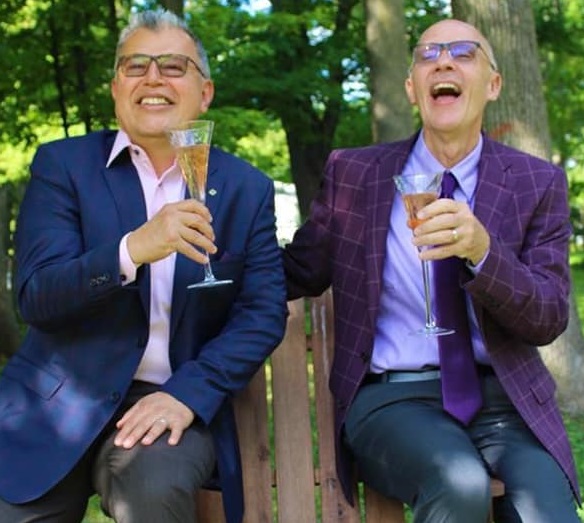
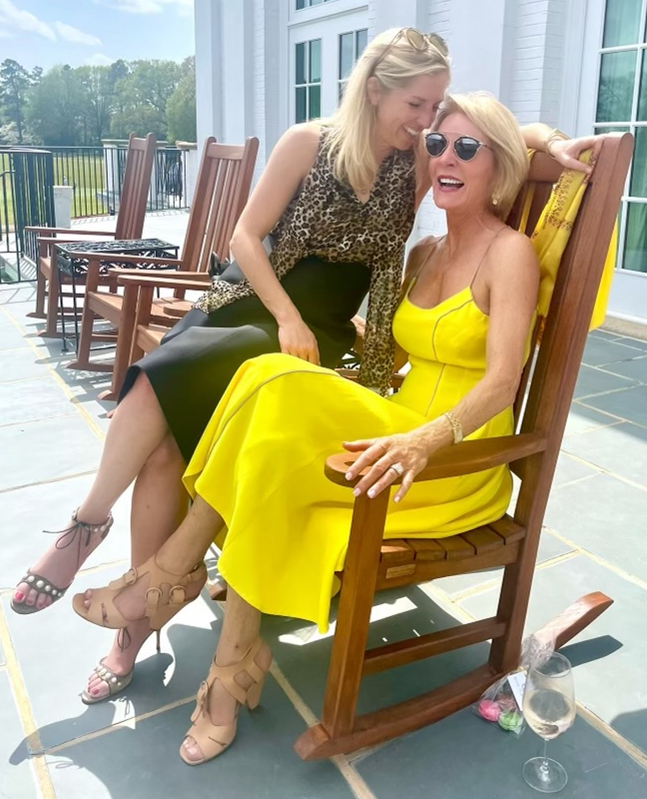
Report on LGBTQ Aging
The
Williams Institute at the UCLA School of
Law published a report, entitled, "LGBTQ
Aging: A review of research findings,
needs, and policy implications."
This report, authored by Soon Kyu Choi
and Ilan H Meyer, reviews current
research on LGBTQ older adults and
provides recommendations for future
research and policies that would address
the needs of LGBTQ seniors. Here is a
summary of their findings:
--LGBTQ older adults face barriers to
receiving formal health care and social
support that heterosexual, cisgender
adults do not.
--Financial instability and legal issues
are major concerns among LGBTQ seniors.
--LGBTQ older adults should be
recognized by the Older Americans Act as
a “greatest social need” group.
This report is a review of the existing
literature of lesbian, gay, bisexual,
transgender, and queer older adults and
provides recommendations for future
research and policy needs.
Although definitions vary, LGBTQ older
adults include the population of sexual
and gender minorities over the age of
50. With no census count available of
LGBTQ older adults residing in the
United States, investigators have used
various methods to estimate the size of
the population. One study estimates that
there are over 2.4 million LGBTQ adults
over age 50 in the United States, with
the expectations that this number will
double to over 5 million by 2030.
Another study estimated that there are
between 1.75 to 4 million LGBTQ adults
above age 60. Without a national
probability sample, accurate
characterization of this population is
difficult. However, numerous
community-based, non-probability studies
provide invaluable insight into the
experiences of LGBTQ older adults and
show that LGBTQ older adults face unique
challenges to aging that their
heterosexual, cisgender peers do not.
Key findings from this review include
the following:
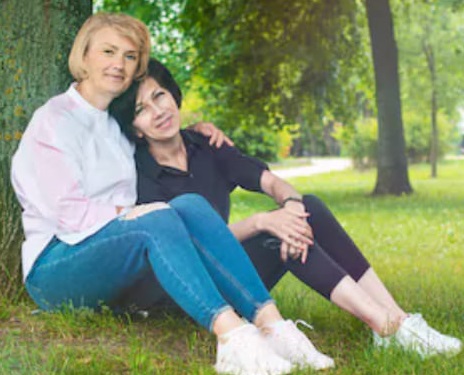
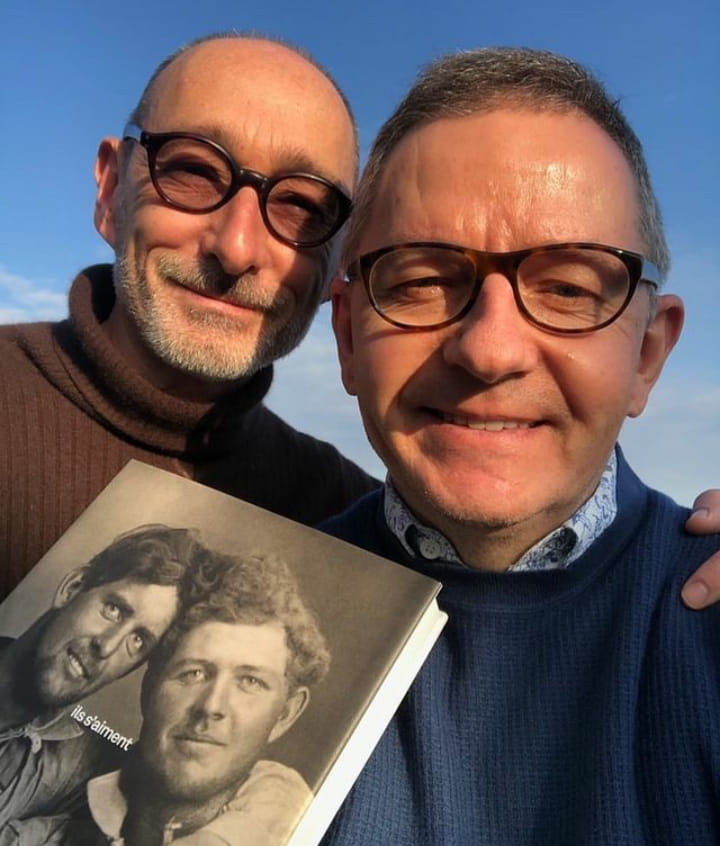
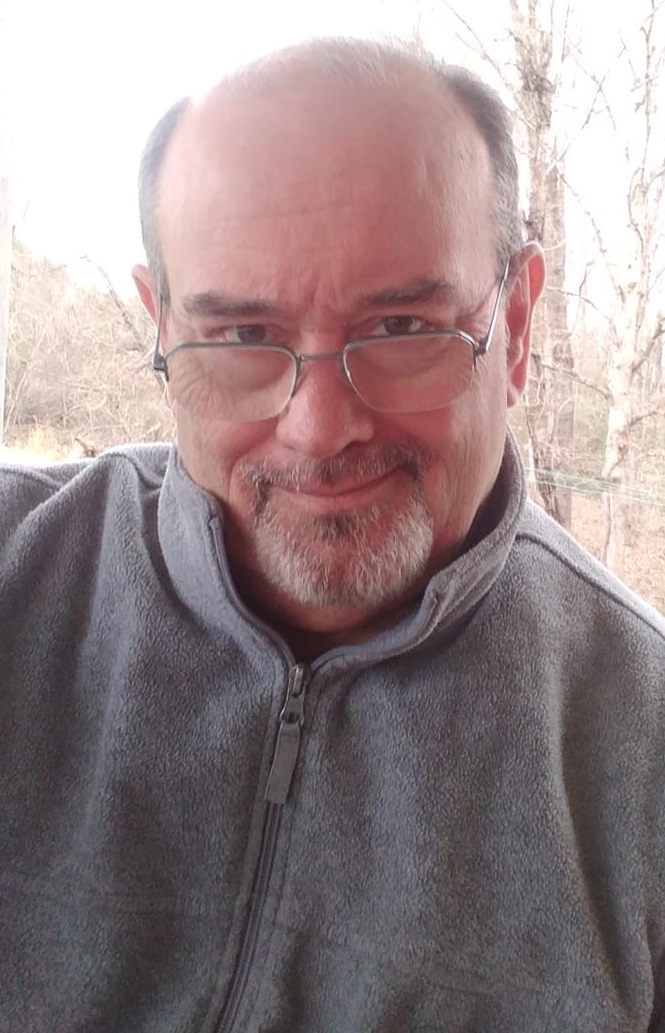
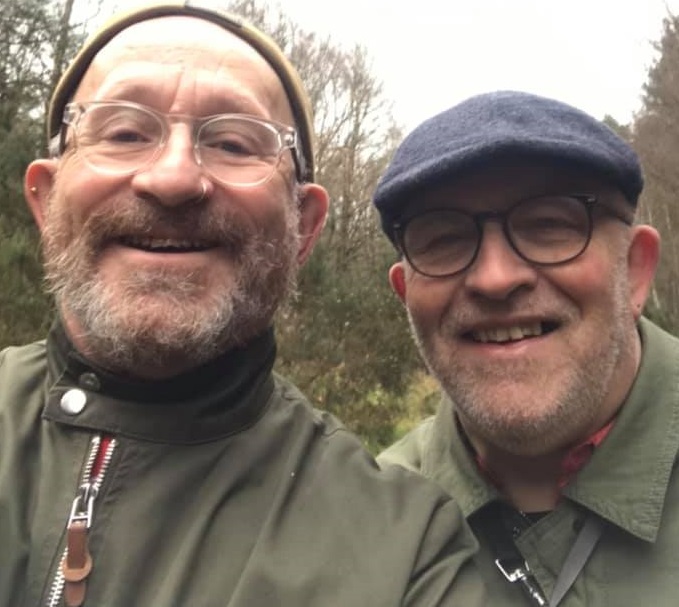
AARP: Caregiving in the LGBTQ Community
LGBTQ Senior
Experience
What it's Like to be a Gay Man at 60
Ann Willoughby and Barb Goldstein:
Together for 43 Years
LGBTQ Seniors Find Safety and Joy in
North Carolina Retirement Village
Today Show:
Four Famous
Old Gay Guys
For Many Gay
Men, It’s
The
Loneliness
That’s A
Killer
Coming Out Later in Life:
37 Years Married to a Man, Divorced, Fell in Love with a Woman
Menopause
Rhapsody: Parody Song
for Every
Aging Queen
Resources for Transgender
Seniors
“Your Love” Film Puts Queer South Asian
Elders Front and Center in a Beautiful Way
97 Year Old Gay Veteran Attacked While Helping Someone
on the Street
Black and
Gay in New
Orleans in
the 60s
LGBTQ Elders
Show
Resiliency
Despite
Barriers
Social Disparities
LGBTQ older adults face barriers to
receiving formal health care and social
support that heterosexual, cisgender
adults do not. Several studies report
LGBTQ older adults avoid or delay health
care, or conceal their sexual and gender
identity from health providers and
social service professionals for fear of
discrimination due to their sexual
orientation and gender identity.
Compared
to heterosexual cisgender adults, LGBTQ
older adults have fewer options for
informal care. LGBTQ older adults are
more likely to be single or living alone
and less likely to have children to care
for them than non-LGBTQ elders. Studies
find resilient LGBTQ older adults often
rely on “families of choice” (families
composed of close friends), LGBTQ
community organizations, and affirmative
religious groups for care and support.
Financial instability and legal issues
are major concerns among LGBTQ seniors.
Lifetime disparities in earnings,
employment, and opportunities to build
savings as well as discriminatory access
to legal and social programs that are
traditionally established to support
aging adults, put LGBTQ older adults at
greater financial risk than their
non-LGBTQ peers.
LGBTQ older adults have experienced and
continue to experience discrimination
due to their sexual orientation and
gender identity. Studies find LGBTQ
older adults experienced high rates of
lifetime discrimination and physical and
verbal abuse in relation to their sexual
and gender minority identity. One study
found that LGBTQ seniors searching for
retirement homes experienced unfavorable
differential treatment (less housing
availability, higher pricing) compared
to non-LGBTQ seniors.
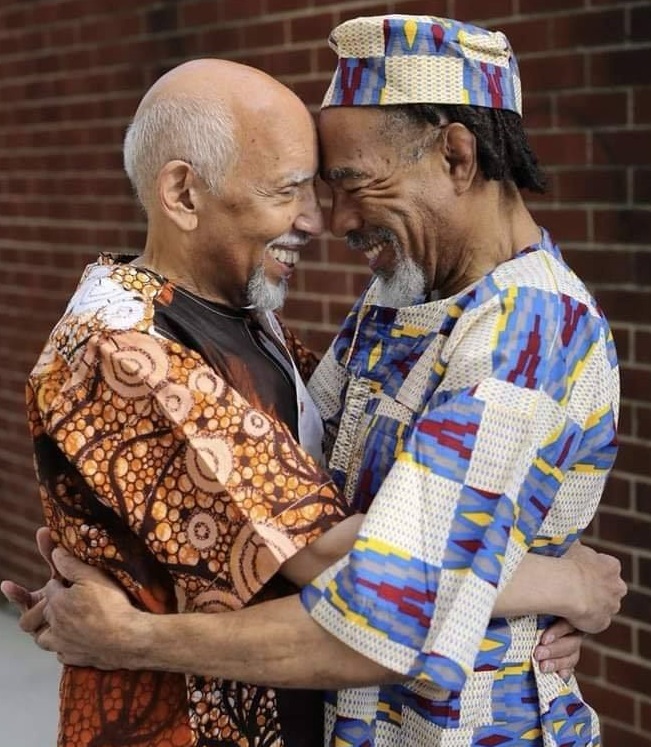

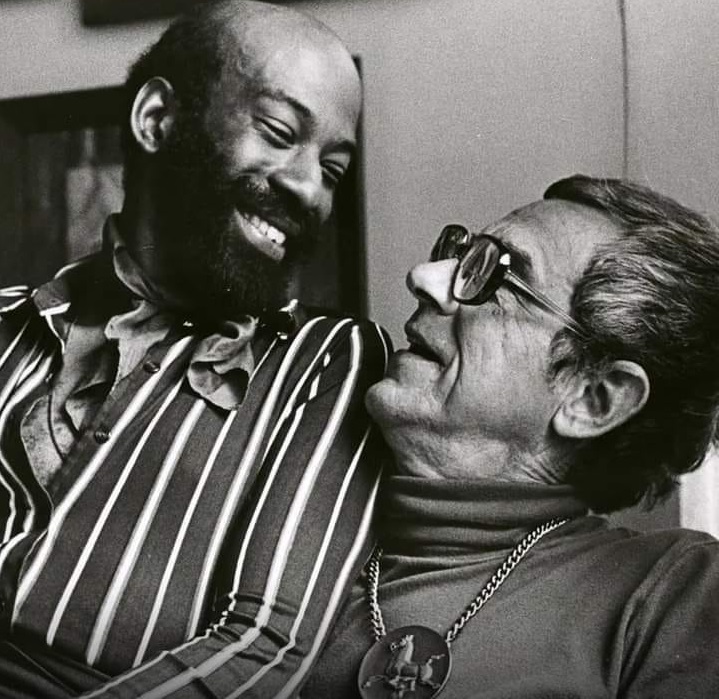
Her Partner of 45 Years Developed
Alzheimer’s: She's Sharing Their Story
LGBTQ Aging:
A Question
of Identity
Story Corps: Two Retired Vets Celebrate
Love
78-Year-Old Man and 13-Year-Old Boy Talk About Being Gay
Gen Silent: LGBTQ Aging Documentary
Now You See Me: Film About Group of
Elder Lesbians
Gray Gays: Aging as an LGBTQ Adult
Never Too Late: I Started Transitioning
at 58
Advocate:
Portraits of LGBTQ Seniors
Video Talk: Old Gays Share Their Coming
Out Stories
Center for
Positive Aging: Resources for Older
LGBTQ Persons
Menopause Rhapsody: Parody Song for Every Aging Queen
Health Disparities
LGBTQ
older adults have worse mental and
physical health compared to heterosexual
and cisgender older adults.
LGBTQ
older adults have higher risks of mental
health issues, disability, and higher
rates of disease and physical
limitations than their heterosexual
counterparts. Compared to their
cisgender peers, transgender older
adults also face a higher risk for poor
physical health, disability, and
depressive symptoms, many of which are
associated with experiences of
victimization and stigma.
Studies also find that
LGBTQ
older adults have a higher prevalence of
engaging in risky health behavior, such
as smoking, excessive alcohol
consumption, and risky sexual behavior
compared to non-LGBTQ
older adults. However,
LGBTQ
older adults have higher rates of HIV
testing than non-LGBTQ
seniors.
Among
LGBTQ
older adults, HIV-positive
LGBTQ
elders have worse overall mental and
physical health, disability, and poorer
health outcomes, and a higher likelihood
of experiencing stressors as well as
barriers to care, than HIV-negative
LGBTQ
elders.
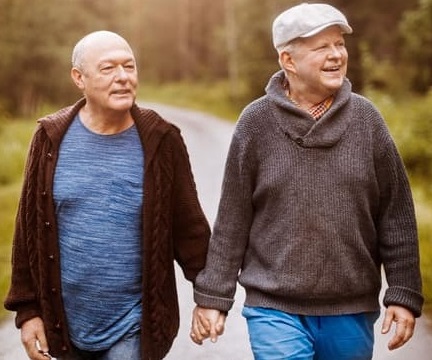

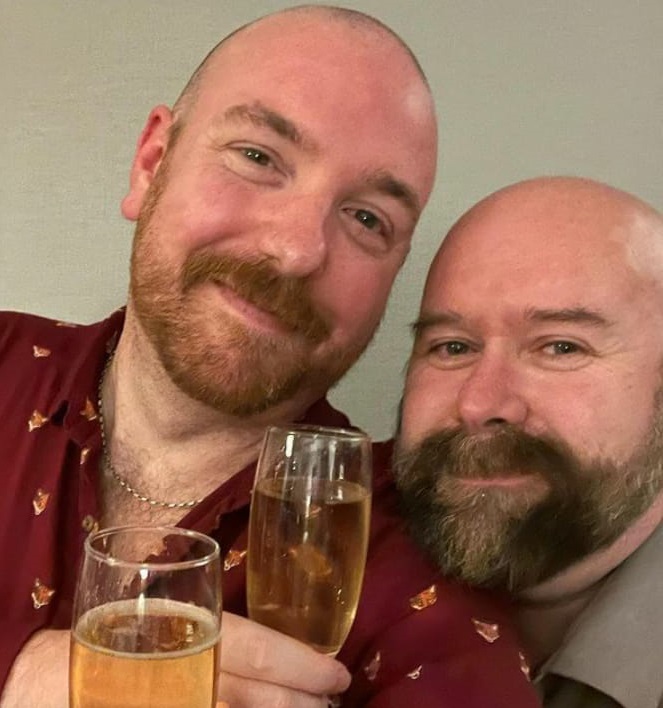
Openly Gay Elders
Gen Silent: LGBTQ Aging Documentary
Ann Willoughby and Barb Goldstein:
Together for 43 Years
Gay and Bisexual Men Enjoy Active Sex
Lives in Their 70s, New Study Reveals
Photos:
Trans Elders
Who Have
Survived
LGBTQ Aging:
A Question
of Identity
Story Corps: Two Retired Vets Celebrate
Love
University of North Dakota: Resources
for the Aging LGBTQ Community
LGBTQ
Seniors Tell Their Stories
Same Sex Couples Tell Us What it's Like
to be Legally Married
Advocate:
Portraits of LGBTQ Seniors
Gay Irish Man Shares the
Joys of Growing Old as a Queer Person
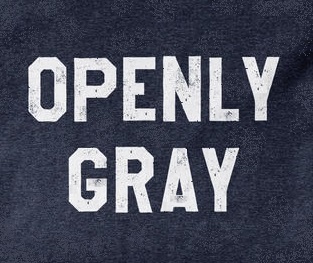
Future Research and Policy Needs
While community-based, non-probability
studies provide important insight, they
may not accurately represent the
LGBTQ
older adult population.
Probability-based studies are needed to
accurately characterize this population
and generalize findings. Only two
studies in this review used
representative samples (both studies
used state-level data) to characterize
LGBTQ
older adults. To our knowledge, no
probability sample of transgender older
adults exists.
Subgroups within the
LGBTQ
older adult population are understudied.
In particular, we know little about
bisexual, transgender, and
intersectional subgroups (older Black
lesbians; Latina transwomen). Age-group
specific analysis is also needed to
provide better-targeted interventions.
From a policy perspective,
LGBTQ
older adults need to be recognized by
the Older Americans Act (OAA) as a
“greatest social need” group. This
designation would open important funding
avenues to prioritize services for and
research of
LGBTQ
older adults. Other policy needs
important to
LGBTQ
older adults are anti-discrimination
legislation and expanding the definition
of family to include families of choice.
LGBTQ
older adults are a growing population
likely in need of more frequent health
care and social support. From a service
perspective, culturally sensitive
training for health care and social
service agencies and professionals that
provide support to elders could be
critical in alleviating expectations of
and experiences of discrimination that
many
LGBTQ
older adults fear when seeking
healthcare and professional help.
[Source: Williams Institute, UCLA School
of Law, 2012]
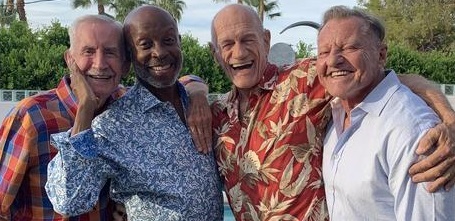
AARP: Caregiving in the LGBTQ Community
Williams
Institute Report: LGBTQ Aging
Providing
Help and
Hope to
LGBTQ Elders
Struggling
With Suicide
AARP: LGBTQ
Pride
Jay-Z’s Mom
Gloria
Carter
Marries
Longtime
Girlfriend
Still Here
Bitch:
Podcast for
Queer Elders
with Host
Gerry Walker
Gay and
Bisexual Men
Enjoy Active
Sex Lives in
Their 70s,
New Study
Reveals
Today Show:
Four Famous
Old Gay Guys
LGBTQ Elders
Show
Resiliency
Despite
Barriers
Ted Brown:
Gay Activist
Who Spent 50
Years
Fighting for
LGBTQ Rights
Controlling
Complications
and Aging
Gracefully
with HIV
The Old Gays
on TikTok
Stonewall
Generation
Shares
Perspectives
Info: LGBTQ
History
At 60 Years
Old, I
Became
Invisible:
Getting Old
as a Gay Man
Stinks
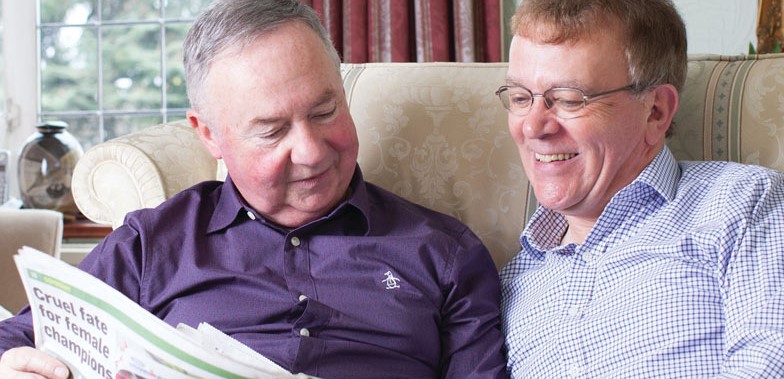
Elderly LGBTQ
Issues and Concerns
Unique experiences and challenges
Elderly LGBTQ (Lesbian, Gay, Bisexual,
Transgender, and Queer) individuals,
like their heterosexual and cisgender
counterparts, have unique experiences
and challenges as they age. Many of
these individuals grew up during a time
when LGBTQ rights were limited, and
societal attitudes were often less
accepting. Consequently, they may have
faced discrimination, stigma, and a lack
of legal protections for their
identities.
As they age, elderly LGBTQ people can
encounter specific issues, including:
Healthcare Disparities: Older LGBTQ
individuals may face healthcare
disparities due to a history of
discrimination and a lack of
understanding from healthcare providers.
They may also be more likely to
experience certain health conditions,
such as HIV/AIDS.
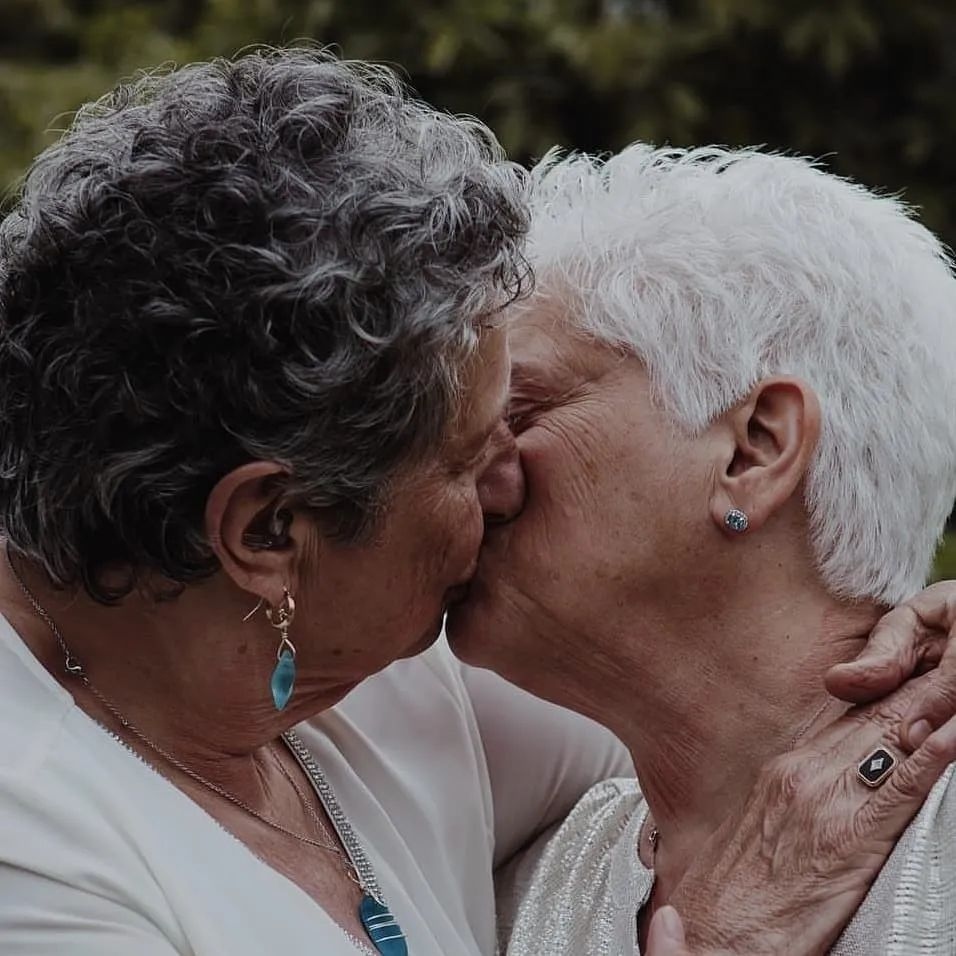
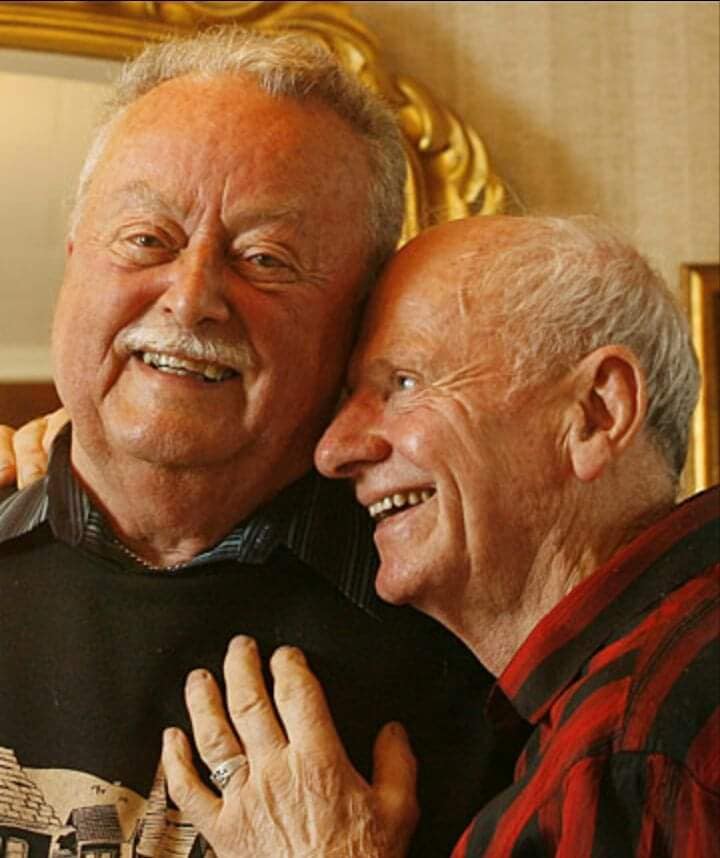

What it's Like to be a Gay Man at 60
50 Years After Stonewall: Stories of
LGBTQ Elders
Life After
Fifty as a Gay Man
Double
Lives: LGBTQ Elders Tell Their Stories
At Age 90, Kenneth Felts Comes Out to
His Family
LGBTQ Senior
Experience
Coming Out Later in Life:
37 Years Married to a Man, Divorced, Fell in Love with a Woman
Aging in
Equity: LGBTQ
Elders in
America
Info: LGBTQ
Retirement
Strategies
Never Have I Ever: Elder Gay Men Having
Fun
Social Isolation: Some elderly LGBTQ
individuals may have smaller support
networks or may be estranged from their
families due to their sexual orientation
or gender identity, which can lead to
increased social isolation.
Mental Health: The stigma and
discrimination they experienced earlier
in life can have lasting effects on
their mental health. They may be more
susceptible to depression and anxiety.
Housing and Economic Inequality: LGBTQ
seniors may face housing discrimination,
and economic disparities can be
compounded by a lack of spousal and
survivor benefits for same-sex couples.
Caregiving Concerns: Elderly LGBTQ
individuals may be less likely to have
children or traditional family
structures to provide caregiving as they
age, which can lead to unique challenges
in seeking and receiving care.
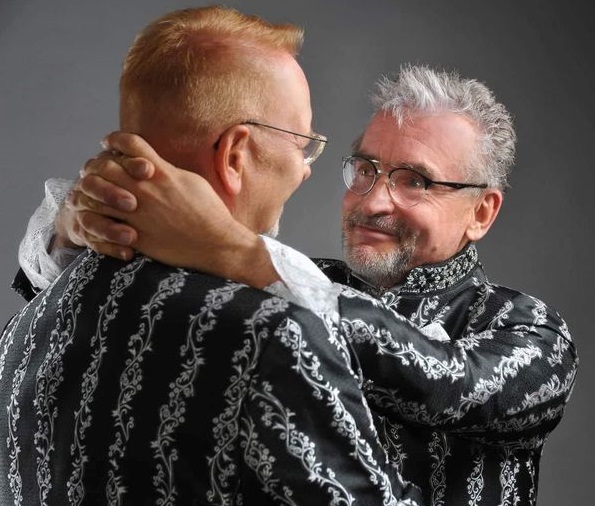 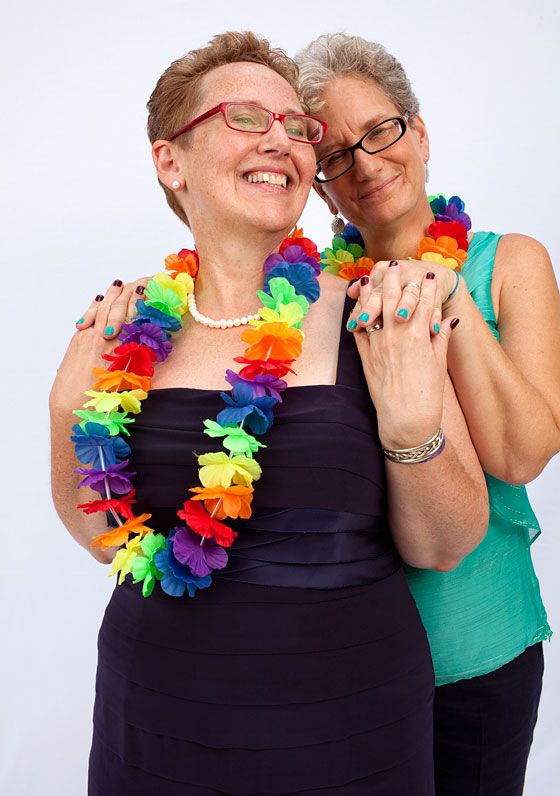
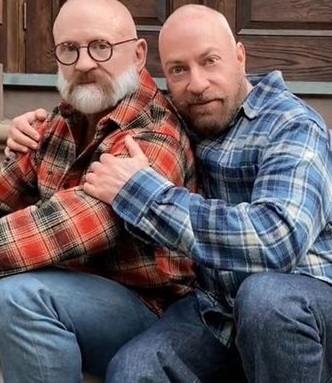
Efforts are ongoing to address these
challenges, with advocacy groups,
healthcare providers, and policymakers
working to create more inclusive and
affirming environments for elderly LGBTQ
people. It's important to recognize and
support the diverse needs and
experiences of this population as they
age, ensuring they can live their later
years with dignity and respect.
Her Partner of 45 Years Developed
Alzheimer’s: She's Sharing Their Story
Story Corps: Two Retired Vets Celebrate
Love
Gen Silent: LGBTQ Aging Documentary
Pandemic Inspires 90-Year-Old to Finally
Come Out as Gay
Now You See Me: Film About Group of
Elder Lesbians
Gray Gays: Aging as an LGBTQ Adult
Center for
Positive Ageing: Resources for Older
LGBTQ Persons
Life After
Fifty as a Gay Man
LGBTQ Senior
Experience
Never Too Late: I Started Transitioning
at 58
Lessons on
Resilience From LGBTQ Elders
“Grow old along with me! The best is yet
to be, the last of life, for which the
first was made."
-Robert Browning
Enduring
hardship makes this population masters
of perseverance. LGBTQ elders know a lot
about resilience. They've simply had to
in order to survive — and certainly to
live long enough to become elders. Their
wisdom offers lessons for anyone who
wants to grow older with the strength of
resilience or bolster this skill while
the pandemic continues to challenge our
lives.
Researchers studying LGBTQ elders find
that the unfortunate experience of
resisting homophobia and/or transphobia
provides the emotional and psychological
tools needed to resist ageism. Karen I.
Fredriksen Goldsen uses the word
"resist" to describe the way LGBTQ older
adults push back against stigma. She's a
professor of social work at the
University of Washington and the
principal investigator of the largest
ongoing study of LGBTQ elders. "Not
everyone, but many, resisted the kind of
stigma and the obstacles that they faced
and tried to create new pathways," she
said.
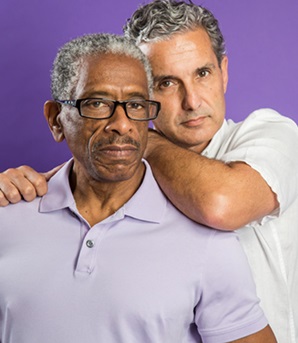
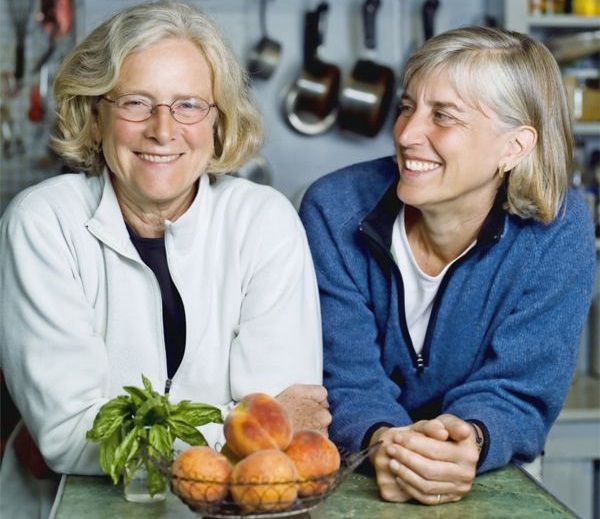
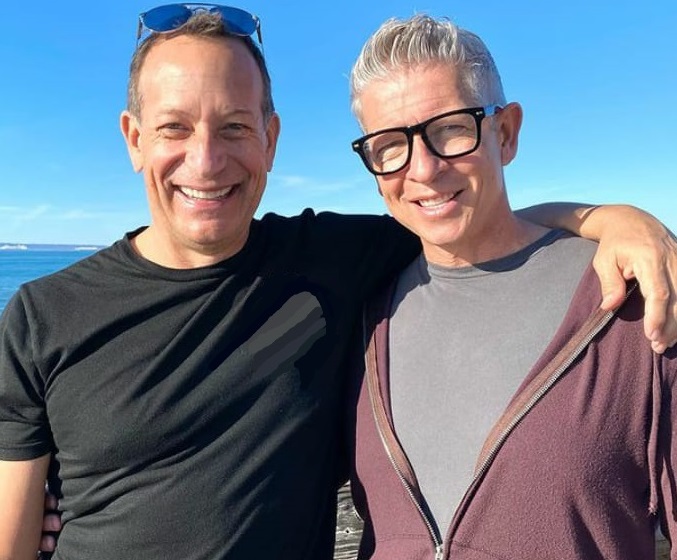
Life After
Fifty for a
Gay Man
At 60 Years
Old, I
Became
Invisible:
Getting Old
as a Gay Man
Stinks
AARP: LGBTQ
Pride
78-Year-Old Man and 13-Year-Old Boy Talk About Being Gay
Menopause
Rhapsody -
Parody Song
for Every
Aging Queen
Mosaic:
Older Gay
Couples
Documentary
Gray Gays:
Aging as an LGBTQ Adult
Richard and John: Elderly Couple
Queer Elders Tell Us
About the Greatest Loves of Their Lives
Video: Silent Pioneers
Gay and Bisexual Men Enjoy Active Sex
Lives in Their 70s, New Study Reveals
Mark Brennan-Ing, a senior research
scientist at the Brookdale Center for
Healthy Aging at Hunter College in New
York City, said this "crisis competence"
can make LGBTQ older adults "better
positioned to cope with the challenges
of aging." Another tool for coping is
what Brian de Vries, professor emeritus
of gerontology at San Francisco State
University, calls "perspective-taking."
He said LGBTQ people are used to being
vigilant about others' responses to
them, which leads to empathy and the
need, and freedom, for LGBTQ elders to
"age on a path of our own creation."
That path begins with coming out. New
York City psychologist Harold Kooden,
84, explores in his book "Golden Men:
The Power of Gay Midlife" the connection
between the dynamics of coming out and
the development of skills that can be
used to age successfully. Kooden
writes that aging with resilience (like
the coming out experience) is about
moving beyond what others want to living
the life you want, from isolation to
belonging to a community, and developing
a sense of hope for a positive future
with a feeling of pride.
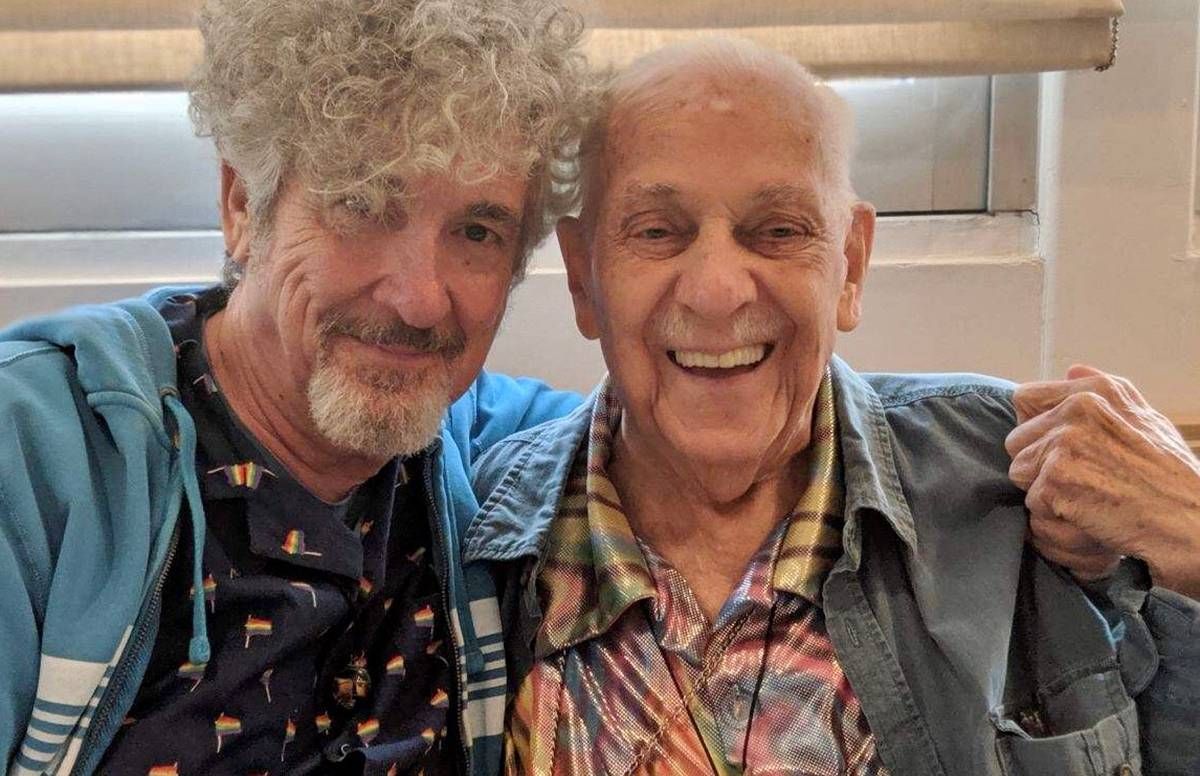
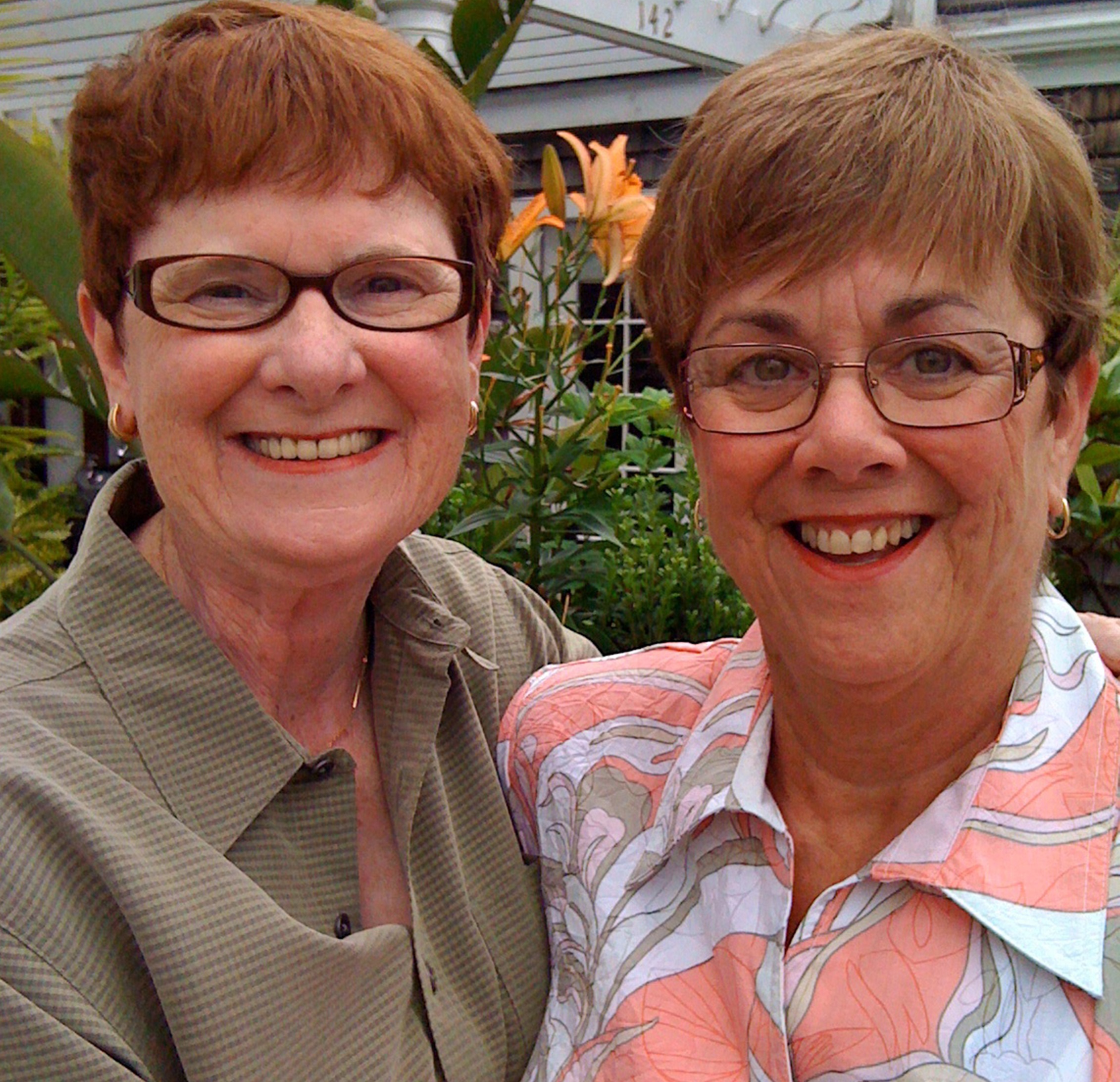
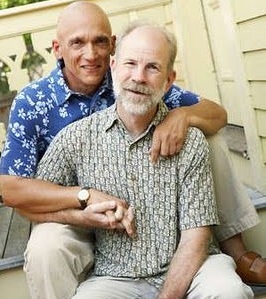
Improving
the Lives of
LGBTQ Older
Adults
Photos: Trans Elders Who Have Survived
Same Sex
Couples Tell
Us What it's
Like to be
Legally
Married
Things Older
Adults Can
Do to Stay
Connected
and Overcome
Isolation
Info: LGBTQ
Retirement
Strategies
Bill and John: More Than Ever
Stonewall Generation Shares Perspectives
Advocate:
Portraits of LGBTQ Seniors
Where Do Gays Retire?
Mental Health Disparities in Older LGBTQ Populations: Research Roundup
Today Show: Four Famous
Old Gay Guys
Defying Expectations
An
attitude of defiance has served Robert
Mary Clement well throughout his 95
years. An ordained priest since 1948 in
the American Catholic Church, Clement
founded The Church of the Beloved
Disciple in 1970 — New York City's first
church specifically for LGBTQ people.
Clement celebrated the first same-sex
holy union at the church that July,
shortly after the first march
commemorating the 1969 Stonewall
uprising that launched the modern LGBTQ
rights movement. "I certainly was
defiant and caused a number of eyebrows
to go up," said Clement, now a resident
of the Los Angeles LGBTQ Center's
Triangle Square — a 104-unit apartment
complex in Hollywood for low-income
elders. His persistent attitude has
served him well in his older years,
especially when dealing with health
issues such as having brain surgery at
89. "But I am not going to dwell on
them," he said. "I'm not feeble. I am
still as positive about being gay as I
was back then."
Defiance also shaped the life of David
Epstein, 70, Clement's husband of one
year and friend of 12. A student radical
in the 1960s, Epstein defied anyone who
tried to put him in the box of expected
heterosexuality. Epstein, too, pushes
back against the negative stereotypes
about people his age: "It's a choice
about how we present ourselves," said
Epstein, clear about his own choice. "I
am not going to be that kind of old
person, the one who sits down and lists
his aches and pains," he said.

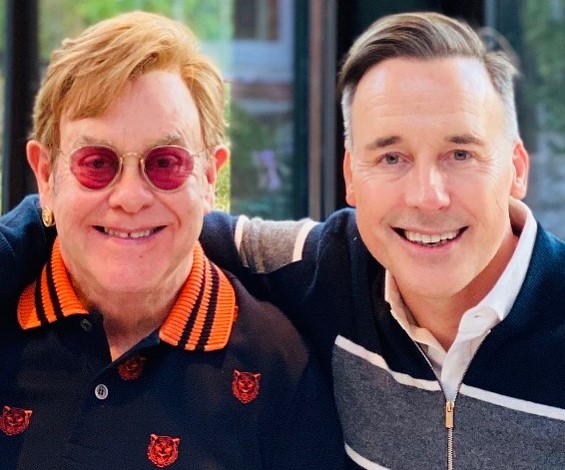
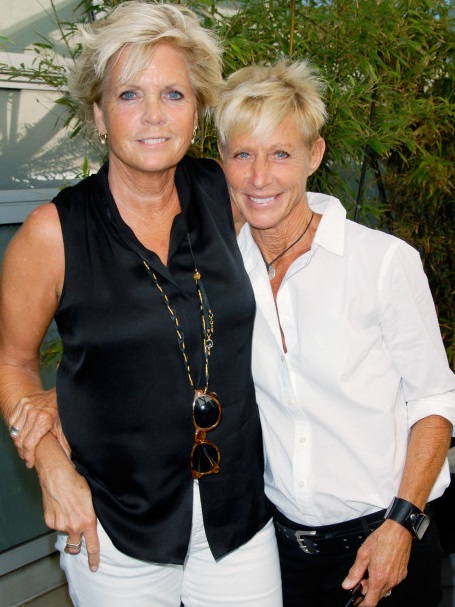
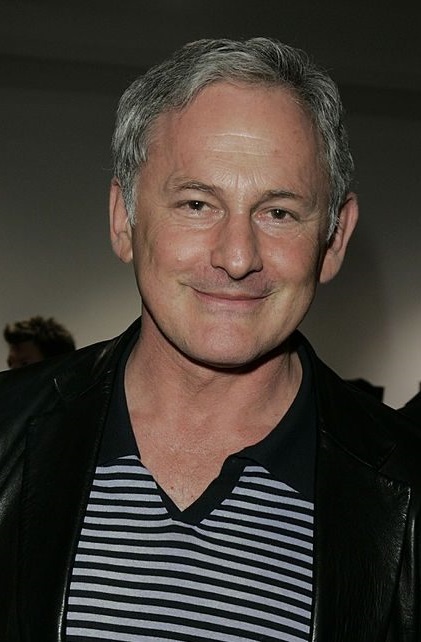
“Your Love” Film Puts
Queer South Asian Elders Front and
Center in a Beautiful Way
Upworthy Voices: Kenneth Felts on Coming
Out at Age 90
Frightening and Encouraging: Being an Older LGBTQ Person
Queer Elders and Lessons
Learned: AIDS Crisis and Coronavirus
92 Year Old Granddad Comes
Out: Tells 70 Year Old Love Story
Sir Ian McKellen: Pride in
Aging Program to Help LGBTQ Seniors
Shatzi
Weisberger:
What I Want
for My 90th
Birthday
Still Here Bitch: Podcast
for Queer Elders with Host Gerry Walker
Gay Irish Man Shares the
Joys of Growing Old as a Queer Person
Resilience Makes Communities
Community
comes up often in conversations with
LGBTQ elders and those who serve them.
Karen Skultety, executive director of
San Francisco's Openhouse, said,
"resilience makes communities."
Everything Openhouse does in managing
104 low-income apartments for LGBTQ
residents and offering wellness,
transportation and community engagement
programs grows out of its commitment to
supporting LGBTQ and other elders'
resilience. "We believe that the power
of resilience makes communities
stronger, better, more powerful and
richer," Skultety said.
Resisting internalized ageism is a "hard
row to hoe," said Imani Woody, founder
of Mary's House in Washington, D.C. and
one of Next Avenue's 2019 Influencers in
Aging. Mary's House (a renovated and
expanded version of the house Woody grew
up in) is the first of what she
envisions will become a nationwide
network of affordable independent living
communities for LGBTQ elders of color.
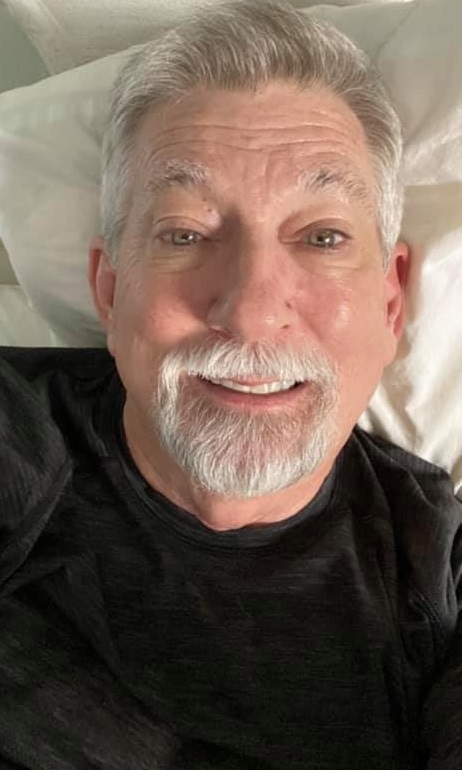
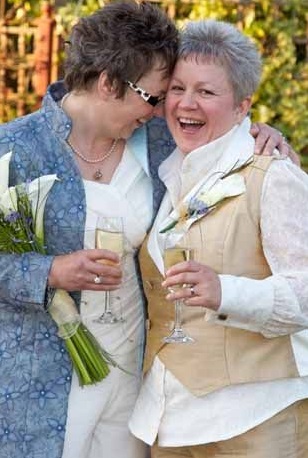
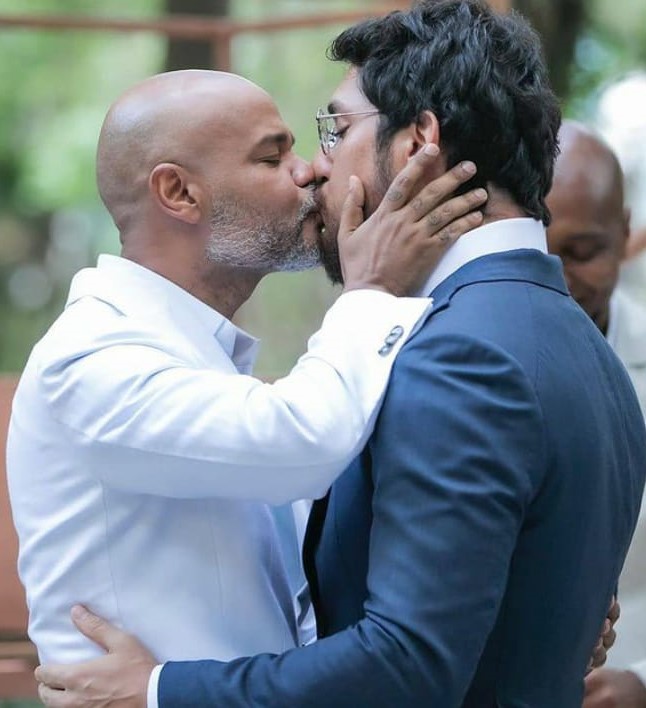
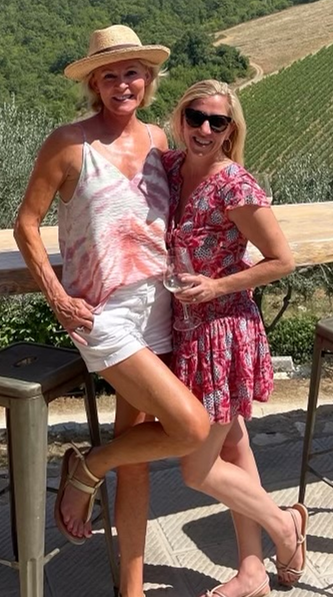
90-Year-Old Shares Story of Coming Out
as Gay with Pride
Center for
Positive Aging: Resources for Older
LGBTQ Persons
Stonewall Generation Shares Perspectives
Providing Help and Hope
to LGBTQ Elders Struggling With Suicide
Double
Lives: LGBTQ Elders Tell Their Stories
Video Talk:
Old Gays
Share Their
Coming Out
Stories
AARP Pride:
LGBTQ
Advocates
See Hurdles
Ahead
The Old Gays on TikTok
Woody explains that Black people know a
thing or two about resilience. "People
of African descent have endured
enslavement, inferior legal standing in
the Constitution, lynching, Jim Crow and
systemic racism," Woody said. "Each
generation has been told, 'Your
ancestors are from Africa, where they
were kings and queens, healers, and
craftspeople. You are enough.'"
What we tell ourselves about our own
aging matters, too. "There is a
vocabulary of happy aging," said English
professor emeritus Frank Galassi, 82.
Galassi still teaches, currently a Zoom
class for the Los Angeles LGBT Center on
LGBTQ history. He said it helps to frame
one's aging experience as a journey of
seeking "more" (such as more wisdom,
kindness, fellowship or service to
others) rather than simply becoming
older."I use those words mentally on a
day-to-day basis," he said.
Galassi laughs recalling an incident
that underscored how even words that
should signify honor and respect can be
used to demean an older person when
coming from a place of ageism — and the
humor that helps to bat them away. "It
ain't easy being surrounded by
millennials in West Hollywood," said
Galassi. "I had the experience a few
months ago — going up the street by a
group of gay white men in their
thirties. I heard one of them say, 'Let
grandpa go by.' So as I passed, I said,
'Stay well, my grandchildren.'" He
added, "You've got to laugh."
[Source: John-Manuel Andriote, January
2021]
Ted Brown: Gay Activist Who Spent 50 Years Fighting for
LGBTQ Rights
Lessons on Resilience From
LGBTQ Elders
Info: LGBTQ Retirement Strategies
Double Lives: LGBTQ Elders
Tell Their Stories
At 60 Years Old, I Became Invisible:
Getting Old as a Gay Man Stinks
AARP: LGBTQ
Pride
“The Old
Gays” are
Teaching us
How to Get
the Most Out
of Life on
TikTok
SAGE
Project:
True Story
Behind the
Stonewall
Rebellion
Gay Retirement Guide For Fabulous LGBTQ
Financial Planning
What it's Like to be a Gay Man at 60
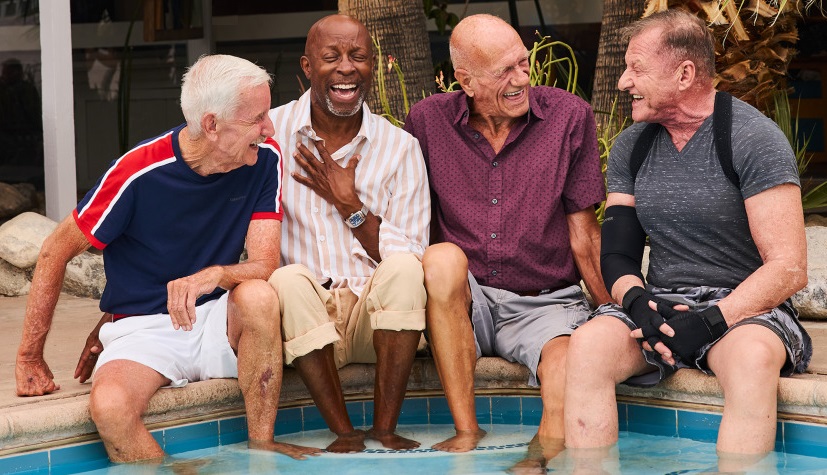
LGBTQ
Seniors Overcoming Social Isolation
What
can LGBTQ older adults do to stayed
connected and overcome social isolation
during a time when a major pandemic has
made quarantine necessary and social
isolation even more commonplace? Whether
hunkered down with the nuclear family, a
spouse, or roommates, practically
everyone is feeling the pinch of
curtailed interactions and relationships
that are confined to the phone and video
conferencing. Social isolation is a
health risk for all seniors, especially
older LGBTQ people. It is important to
find resources to empower you to fight
it.
But for older adults, the pandemic only
made an existing problem worse. The CDC
has called social isolation in older
adults a serious public health risk. “It
actually increases your risk of early
death from all causes,” Dr. Erwin Tan,
director of health and thought
leadership at AARP, noted on a recent
AARP Town Hall for the LGBTQ community.
“Some people say it’s as bad as smoking
15 cigarettes a day.”
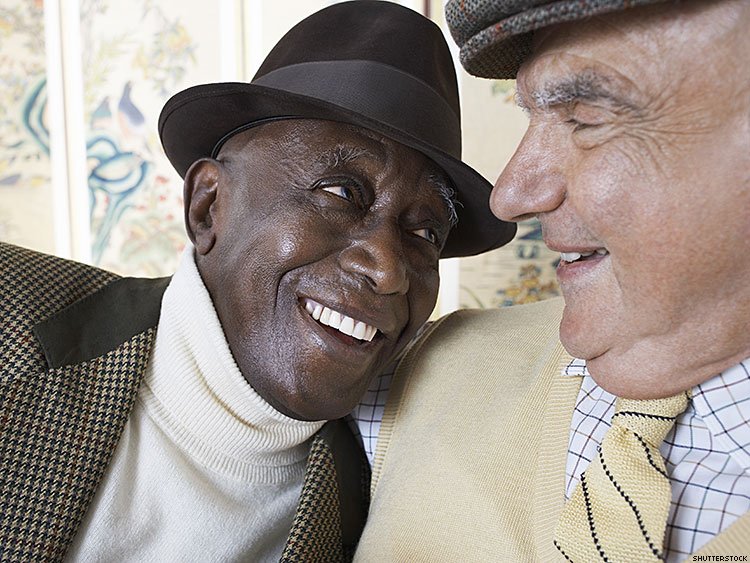
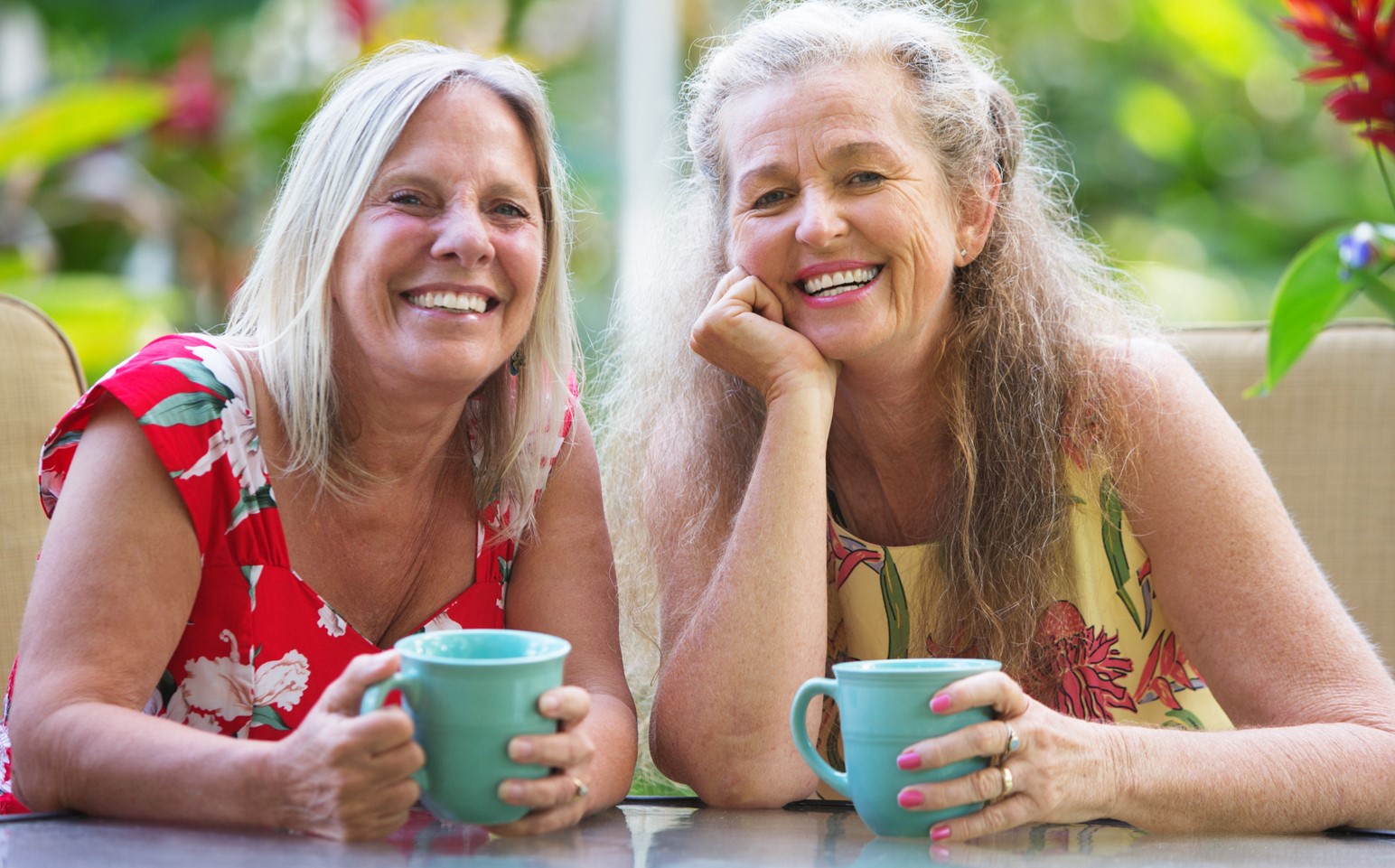
AARP: Caregiving in the LGBTQ Community
Frightening and Encouraging: Being an Older LGBTQ Person
Queer Elders and Lessons
Learned: AIDS Crisis and Coronavirus
92 Year Old Granddad Comes
Out: Tells 70 Year Old Love Story
Sir Ian McKellen: Pride in
Aging Program to Help LGBTQ Seniors
Shatzi
Weisberger:
What I Want
for My 90th
Birthday
SAGE
Project:
True Story
Behind the
Stonewall
Rebellion
Gay Retirement Guide For Fabulous LGBTQ
Financial Planning
Gay and Bisexual Men Enjoy Active Sex Lives in Their 70s, New Study Reveals
78-Year-Old Man and 13-Year-Old Boy Talk About Being Gay
And
social isolation is an even bigger issue
for LGBTQ elders. According to
“Maintaining Dignity: Understanding and
Responding to the Challenges Facing
Older LGBTQ Americans,” a survey
conducted by AARP, increasing social
support is a major challenge. That’s
particularly true of gay men and
transgender/gender-expansive
individuals. Gay men in the survey were
far more likely to be single and living
alone compared to lesbians and reported
being less connected than lesbians on
every relationship type tested,
including friends, partners, and
neighbors. Transgender people were the
least likely of all to be connected to
sources of social support.
However, there are resources available
to help older adults recognize and
overcome social isolation. These
resources work particularly well for a
community that has relied upon
self-empowerment in its quest for
liberation, by allowing individuals to
take better control over their lives and
ensure themselves the social support
they need.
Here
are some helpful tips from AARP to help
address social isolation:
AARP: Connect2Affect Assessment
Assess how connected you are.
Knowing where you are are in terms of a
support network at the moment helps you
understand where you need to be. Just
how strong is your social support
system? It may not be as strong as you
think. The AARP Foundation offers a
short assessment as part of its
Connect2Affect program to help you
identify problem areas.
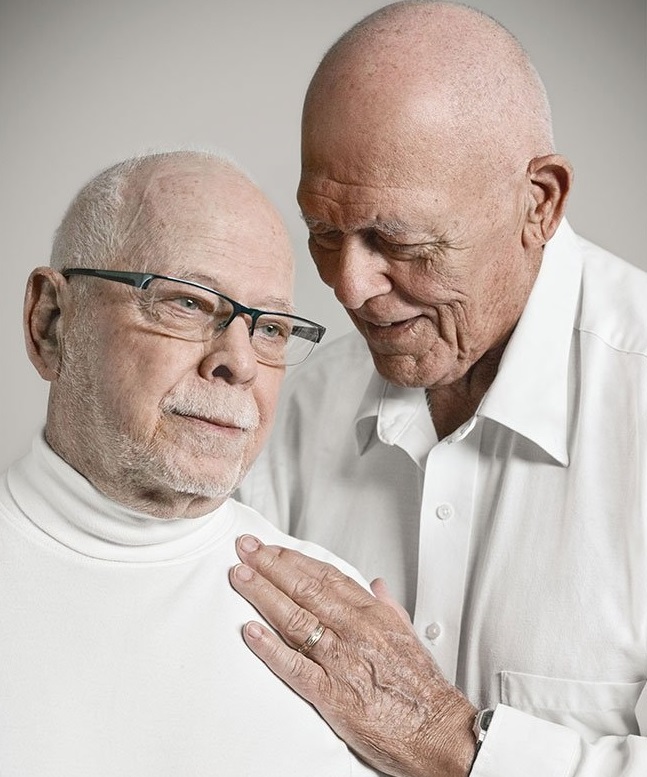
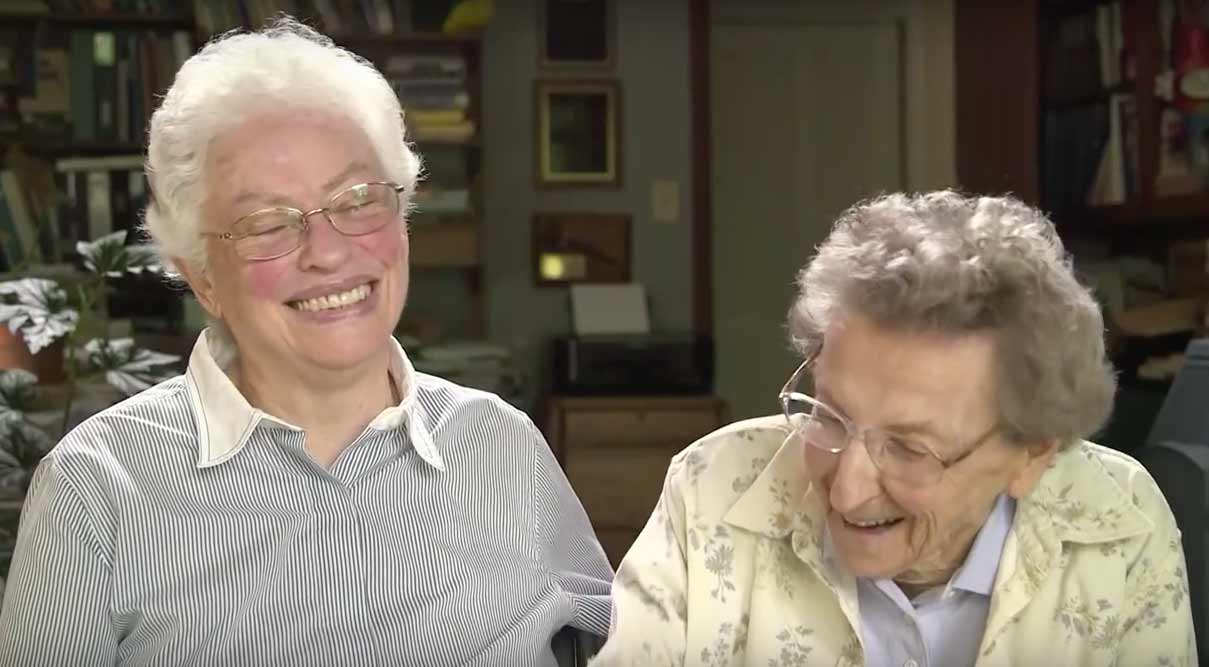
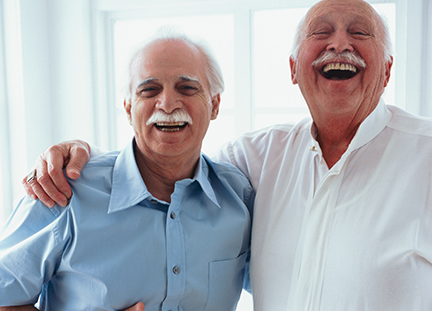

AARP: Friendly Voices Program
Talk
to someone. A conversation can go a
long way to alleviating a sense of
loneliness. Don’t discount the power of
an online community as well. Even if you
are staying at home most of the time,
you don’t have to be cut off from other
people. AARP offers their Friendly
Voice program, that allows you to
request a phone conversation from a
trained volunteer.
AARP:
The Mighty Community for Healthcare
Challenges
Be
aware of how your health affects your
social connections. Isolation is a
major issue for people with physical
limitations that affect mobility.
Hearing loss and visual impairment may
also be contributors. AARP offers their
The Mighty program, which is a
safe, supportive online community for
people facing health challenges and
their caregivers.
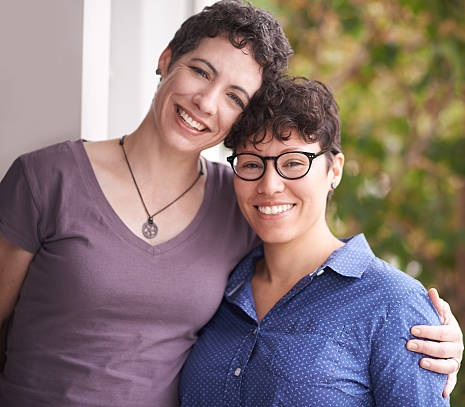
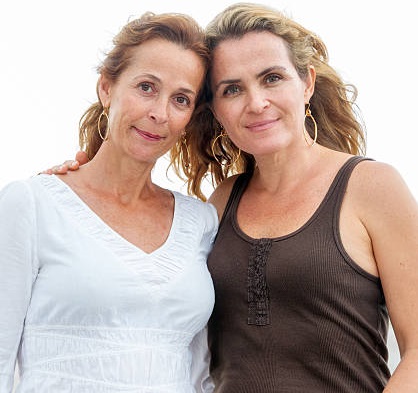
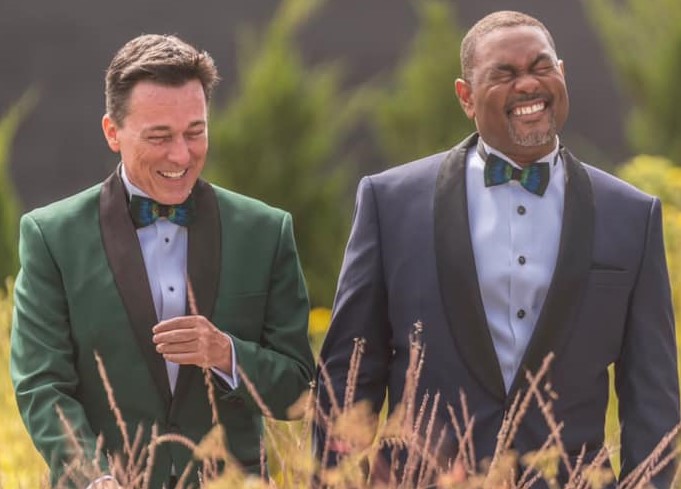
AARP: Volunteer Opportunity Board
Be a volunteer. Maybe you’re
feeling isolated but you don’t have the
physical limitations that keep you at
home most of the time. If you’re
physically able, you can consider
volunteering. During the pandemic, there
are volunteer opportunities that require
only a telephone or laptop that will
still keep you connected. It’s a great
way to meet people, stay active, get
involved in the community, and to put
your experience to good use. AARP has a
Volunteer Opportunity Board that
tells you about organizations in your
area that lets you share your experience
and interests with groups that could use
your help. LGBTQ organizations also rely
heavily on volunteers to keep them
going. Consider reaching out to see what
you can do to help your community and
you will be enriched beyond measure in
return.
[Source:
LGBTQ Nation Magazine and AARP LGBTQ
Foundation]
AARP: LGBTQ Pride
LGBTQ Seniors: The Joy of
Being Out
Gay Men More
Sexually
Active in
Old Age,
Study
Reveals
Coming Out
at 90 Years
Old to My
Gay Daughter
Stonewall Generation Shares Perspectives
Gay Authors Whose Stories Show Us How to
Age Gracefully
Lessons on Resilience From
LGBTQ Elders
Coming Out Later in Life:
37 Years Married to a Man, Divorced, Fell in Love with a Woman
Double Lives: LGBTQ Elders
Tell Their Stories
Today Show: Four Famous
Old Gay Guys

Older Wiser Lesbians
An OWL is an older wiser lesbian. This
acronym, used informally to describe
elderly gay women, is a slang expression
referring to experienced lesbians who
have personal insight of the history of
the LGBTQ movement. Typically, it is a
term meant as an expression of respect.
Around the country, there are local
social groups and support groups
for elderly gay women called OWL clubs
or organizations. And there is a 2010
movie entitled "The Owls," about a group
of senior lesbians.
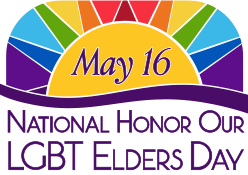
Honor
Our LGBTQ Elders
National
Honor Our LGBTQ Elders Day is celebrated
annually on May 16. It was established
to draw awareness to and appreciation of
the lifetime of contributions made by LGBTQ
older adults.
National Honor Our LGBTQ Elders Day
works to unite the LGBTQ community and
its allies to celebrate and thank those
individuals who fought on behalf of us
all.
The idea for this special day was
conceived in 2016, by the LGBTQ Health
Resource Center of Chase Brexton Health
Care, in Baltimore, Maryland. It
first
opened its doors in 1978 as a clinic
focused exclusively on the health care
of gay men, a revolutionary and
much-needed concept for its time.
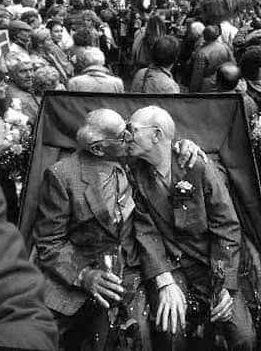
Danish Gay Activists
Axel Axgil (1915-2011) and Eigil Axgil
(1922-1995) were Danish gay activists
and a longtime couple. They were the
first gay couple to enter into a
registered partnership anywhere in the
world following Denmark's legalization
of same-sex partnership registration in
1989, a landmark legislation which they
were instrumental in bringing about.
They adopted the shared surname, Axgil,
a combination of their given names, as
an expression of their commitment. In
1948 they established the Danish
National Association of Gays and
Lesbians, Denmark's first gay rights
organization. In 1989, Denmark became
the first nation in the world to
recognize registered partnerships for
same-sex couples, nearly equal to
(opposite-sex) marriage.
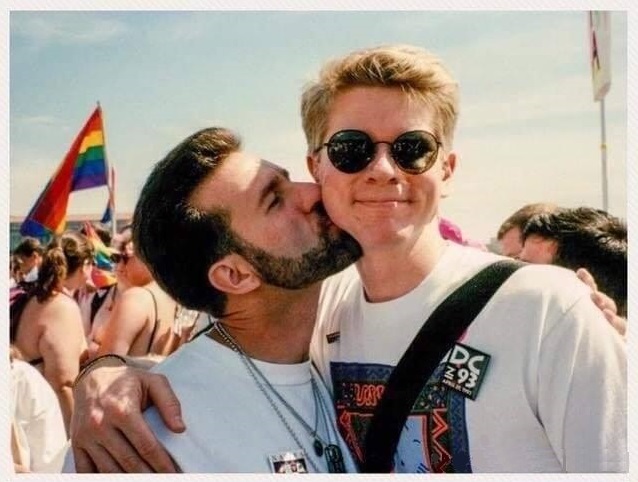 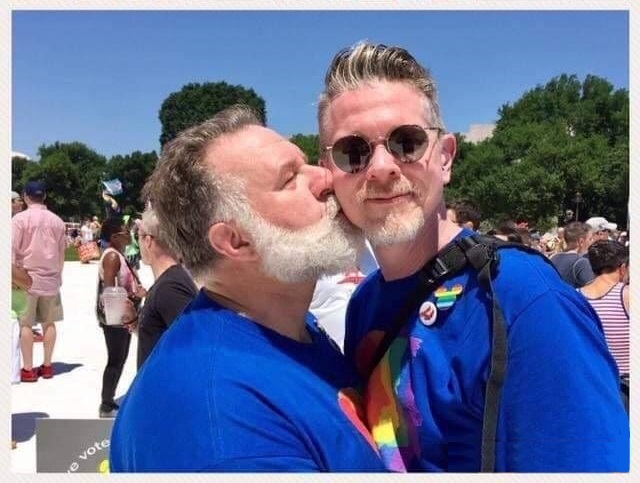
Together for 25 Years
Nick Cardello, 54, and Kurt English, 52,
met in 1992 at the Washington DC Gay
Pride event. They took a photograph on
the National Mall to commemorate the
day. In June 2017, 25 years later, they
went again to the Washington DC Gay
Pride event and re-created the photo
they took. The photo, which went viral,
was an important moment for them and
their long-term relationship.
"This is so necessary. For young gays to
see old gays happy, in love, and proud."
They're now married and living in Tampa,
Florida.
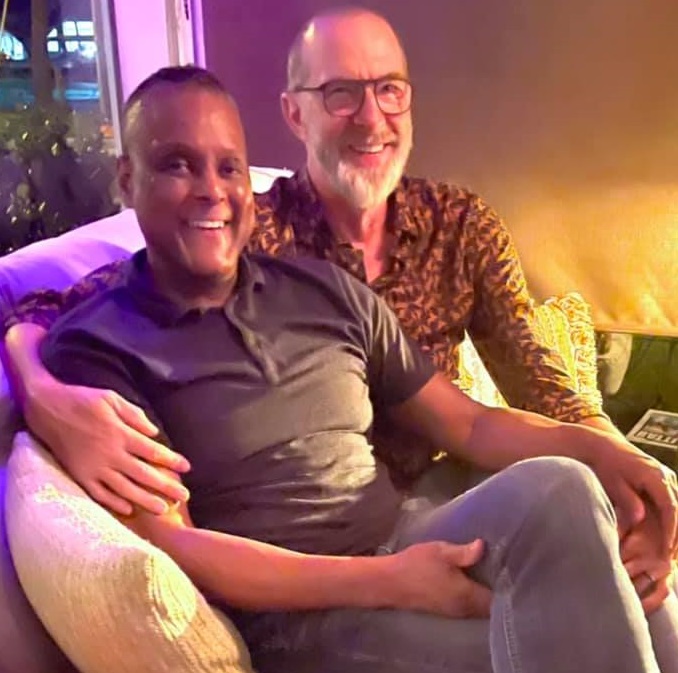
Harvey and Jeff
Sometimes we sit and talk for hours in
the kitchen, Jeff going about meal
preparations, I sitting on a swivel
counter stool, going on and on about our
jobs, our past but mostly about the
present and what we are experiencing. We
are learning how to be honest, open, and
vulnerable with each other. Yeah, often
times we are in a jovial mood, telling
funny stories, laughing at experiences
who at the time weren't funny but now we
can see the humor in them. There are
times when we are both in the house,
each going about our own worlds, I
painting my ideas on a canvas, Jeff
doing household chores or watching a
cooking show on tv as he prepares his
next meal for us.
Then there are the times when we talk
very seriously, putting into words what
is deep inside of us, whether painful or
emotional, our hearts reaching out to
each other in empathy. We are learning
the importance of sharing without having
to understand what the other person is
experiencing. Life is not just a series
of questions to be pried into, life is
sharing without having to know the
reason behind feelings, without having
to understand. Living deeply is way more
than that. The other evening, we were
watching a stressful family scene in a
drama and I became emotional. Not a
storm of weeping, but a chord was
touched deeply inside my heart as I
watched the reaction of a parent towards
an adult child. "Are you okay?" I
nodded, unable to speak and Jeff held my
hand for a long moment as the story
unfolded. I'm learning love languages I
did not know existed. I'm learning to
wait if my curious mind wants answers
now, to know even during the times when
a strain seems to appear between us,
everything will be okay. Not to push and
pry, to insist on knowing what is going
on in Jeff's mind, but to rest in the
security of our concern and care, yes
our deep love, for each other.
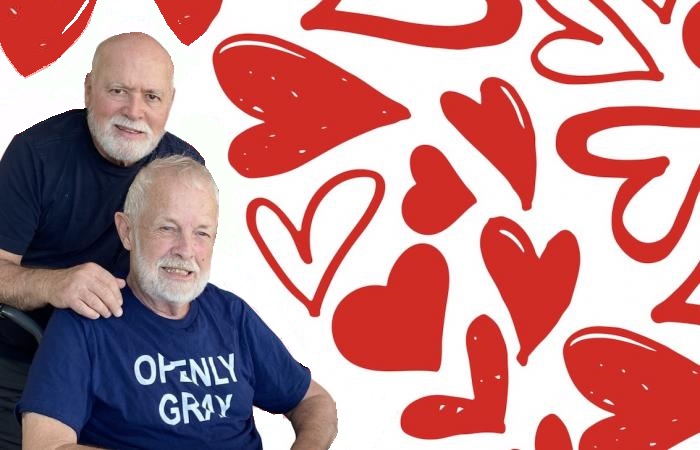
It took time to come to this place of
trust. You see, we both have gone
through being abandoned, having our
lives turned upside down and of course,
at first we didn't know if we were
compatible enough for a relationship. I
won't enumerate all of those
experiences, enough to know they
existed. However, there are no longer
the periods of flight when things get
strange. For I am blunt, two adults
blending our lives into a close
relationship has it's challenges. But
this post isn't about that. To have
someone know you so well you don't have
to try to perform is almost uncanny. To
be assured you are cherished and loved
and that love is shown in hundreds of
ways, both large and small, is a gift of
great value. We work at it, for not
everything comes naturally. "I love you
more every day. I look at you and you
are more handsome the longer I know
you!" I hang on to these words and many
more even more intimate and hold them
deeply in my heart, for my man is not
superfluous with words and does not
throw his emotions into words lightly.
This is a smidget of my life with Jeff.
I'm not asking anyone to understand, to
approve or in any way even make a
judgment on what I am writing. I am
opening the door into my life just big
enough for you to get a glimpse of what
happens when two people meet and fall in
love. And grow in love. Are we unique in
this? I think so and yet I am also wise
enough to know this kind of union exists
in thousands of relationships all over
the world. In relationships far
different than ours. Yet, I also am wise
enough to know when this happens, it is
something beyond what either of us could
plan on our own. Ours is a union made in
heaven, we are star crossed lovers, or
whatever else you may believe exists
when two people are meant to be
together. For me, this is marriage.
[Source: My Life With a Man by Harvey
Yoder]
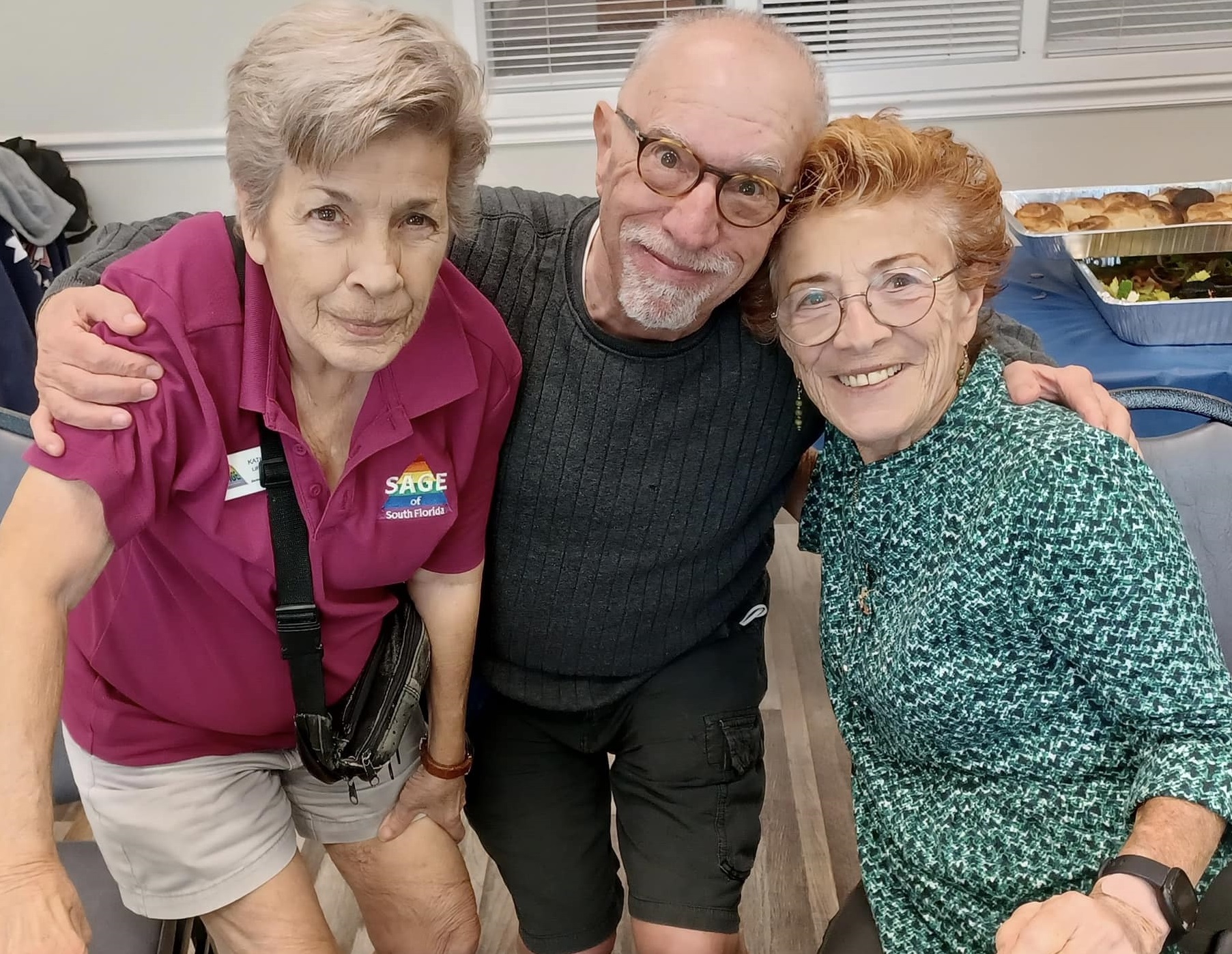  
National Honor Our LGBTQ Elders Day
LGBTQ
Seniors Tell Their Stories
78-Year-Old Man and 13-Year-Old Boy Talk
About Being Gay
Jay-Z’s Mom Gloria Carter Marries
Longtime Girlfriend
Providing Help and Hope
to LGBTQ Elders Struggling With Suicide
At 60 Years Old, I Became
Invisible: Getting Old as a Gay Man
Stinks
Controling Complications
and Aging Gracefully with HIV
Williams
Institute Report: LGBTQ Aging
The Old Gays on TikTok
Ted Brown: Gay Activist Who Spent 50 Years Fighting for
LGBTQ Rights
Lessons on Resilience From
LGBTQ Elders
Info: LGBTQ History
Never Too Late: I Started Transitioning at 58
What it's Like to be a Gay Man at 60
Secrets for Lifelong Romance
From a Gay Couple Together 25 Years
Fred Berger, 74, and his husband, Ken Merrifield, 79,
both have significant birthdays in February 2022. But
before then, the couple will celebrate Valentine's Day
together, as they have done 24 times previously.
The two met on a windswept beach in Provincetown on a
January afternoon. It wasn't just the romantic setting
that sparked their mutual attraction. Fred
recalls, "It was a connection that we felt... just sort
of an initial attraction. I don't know how to describe
it, really."
A natural question might be how the two men came to be
on that beach at all. After all, Provincetown might be a
center of gay culture, but it's much more a summer
destination than a wintertime haven. "Well, I was living
in Boston," Fred, a retired social worker, recalls, "and
Ken was living in Provincetown. And it was Martin Luther
King weekend."
Picturesque as the scene might have been, the frigid
wind off the ocean hastened things along. "We had a
short conversation, and then we went to, I think it was
my guest house." Fred recounts. "And really, yeah, we've
been together since then. I moved to Provincetown about
nine months later."

Menopause Rhapsody: Parody Song for Every Aging Queen
Where Do Gays
Retire?
Mental Health Disparities in Older LGBTQ Populations: Research Roundup
Today Show: Four Famous
Old Gay Guys
Queer Elders Tell Us About the Greatest
Loves of Their Lives
Older Lesbians: Keepers of Rich History of the Lives of
Gay Women
LGBTQ
Seniors: The Joy of Being Out
Center for
Positive Aging: Resources for Older
LGBTQ Persons
Today
Show: Four Famous Old Gay Guys
At Age 90, Kenneth Felts Comes Out to
His Family
Video:
Silent
Pioneers
In the near quarter-century that's elapsed since then,
the pair have traveled extensively. "Santorini, Greece,"
Fred says when asked about a favorite destination. But
love, and life together, have been the biggest adventure
of all.
"You do make a lot of adjustments," Fred notes. "I think
one thing we learned is to stop trying to change the
other person. Stop seeing their faults and wanting them
to be more like you, and just accept each other. And I
know that sounds easy to say, but I think it's really
significant."
"It's a lifelong
project," Ken chimes in. "A lot of our interests
are similar, but our personalities are not similar,"
Fred adds, "so that's where the acceptance comes in.
But," he adds, "we complement each other. We balance
each other out. It works." Such relationship
success doesn't happen without mindfulness and a handful
of foundational principles. For Fred and Ken, those came
down to just a few essentials. "I think honesty is
one of the best qualities of Fred," Ken volunteers.
"Honesty, trust, acceptance," Fred adds, going on to
explain that efforts to cultivate those qualities in
their relationship include more than just the two of
them. That acceptance, he says, expanded to include "all
the people around us — Ken's family, and my family."
Though Ken was married to a woman in his younger days,
"it was mainly because he wanted to have kids," Fred
explains. "So, they were married about seven years, and
then they divorced, and Ken was always very open with
his kids. He has a gay son who came out when he was
about 16."
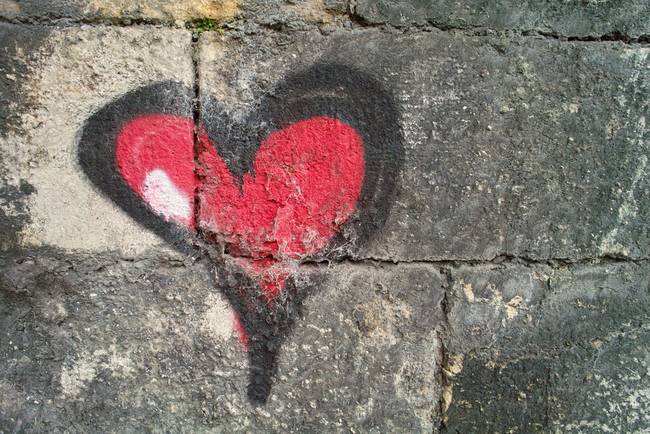
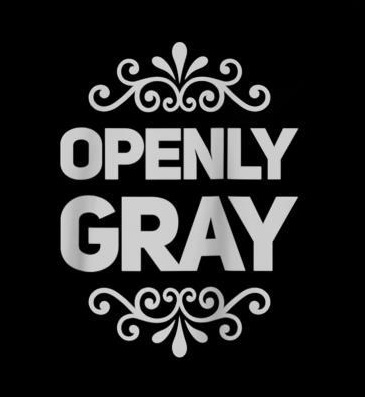
Old Lesbians
Organizing
for Change
Coming Out Later in Life:
37 Years Married to a Man, Divorced, Fell in Love with a Woman
LGBTQ Aging:
A Question
of Identity
Resources
for Transgender Seniors
Frightening and Encouraging: Being an
Older LGBTQ Person
What is Was Like Being Gay in the 1940s
92 Year Old Granddad Comes
Out: Tells 70 Year Old Love Story
Sir Ian McKellen: Pride in
Ageing Program to Help LGBTQ Seniors
Shatzi
Weisberger:
What I Want
for My 90th
Birthday
SAGE
Project:
True Story
Behind the
Stonewall
Rebellion
And there's more to the
family saga: Fred recounts how, after Ken moved out, a
friend of his wife "moved in. And they've been in a
committed relationship for 35 years!" Fred details
that "Ken has three kids. When we met, they were already
in college, and we never lived with them, but they're
really great people, and they're pretty much my family
as well. We're very close."
So essential are those family bonds that when the couple
was asked if any particular Valentine's Day stands out
for them from the last quarter-century, it's not an
intimate getaway or a trip to some distant locale that
they recall. "Two years ago, Ken's gay son got
married on Valentine's Day," Fred says. "That was really
special for everybody."
Honesty, trust, acceptance. It sounds like a winning
formula, but haven't they also shaped one another over
the years? "I think so," Fred allows. "People say
couples grow to look alike. Especially while traveling,
people first meeting us have thought we were brothers or
twins. A couple of times, recently, they asked if Ken
was the father and I was the son, though there's only
five years' difference!"
That admission prompts some hearty laughter, but Fred
addresses the fact that while time might make a couple
more closely resemble each other, it also, inevitably,
involves health issues. "The big change has been
in recent years," Fred elaborates. "Ken has the
diagnosis of Parkinson's, and I'm his caretaker. And
that has brought us really close. And just a few months
ago, we moved into senior housing together. I'm still a
caretaker, but it's a different way of living now."

COVID made a move necessary, Fred explains. Both men got
sick during the pandemic, and Fred couldn't keep on as
caretaker without help. Even before they got ill, the
men had contemplated senior housing. "We live in
Fort Lauderdale, and we have lived here for 17 years,"
Fred explains. "I had visited a place that was new about
a year or so ago, and it was a very short distance from
where we lived before." As Fred recovered from his bout
with COVID, "one of Ken's daughters came down and did
all the research, visited the place, looked at the
specific room they were interested in."
Now Fred and Ken reside at Belmont Village Senior Living
Fort Lauderdale. Given the too-common stories of
LGBTQ elders facing disparities and even bias-driven
abuse, was there concern around how welcoming their new
home would be? "As far as being gay here, we've
been totally comfortable," Fred says. "There's not been
a hint of any kind of non-acceptance. So it was a very
good decision."
Happy 25th Valentine's Day together, Fred and Ken!
[Source: Kilian Melloy, Edge Media Network, Feb 2022]
LGBTQ Celebs in Their 50s Who Are Getting Better With
Age
Secrets for Lifelong Romance From a Gay
Couple Together 24 Years
LGBTQ Elders Share Words of Advice and Wisdom
Social Security Survivor's Benefits
for Same-Sex Partners
LGBTQ Seniors: The Joy of
Being Out
Lessons on Resilience From
LGBTQ Elders
Double Lives: LGBTQ Elders
Tell Their Stories
Today Show: Four Famous
Old Gay Guys
AARP: LGBTQ Pride
78-Year-Old Man and 13-Year-Old Boy Talk About Being Gay
Frightening and Encouraging: Being an Older LGBTQ Person
Queer Elders and Lessons
Learned: AIDS Crisis and Coronavirus
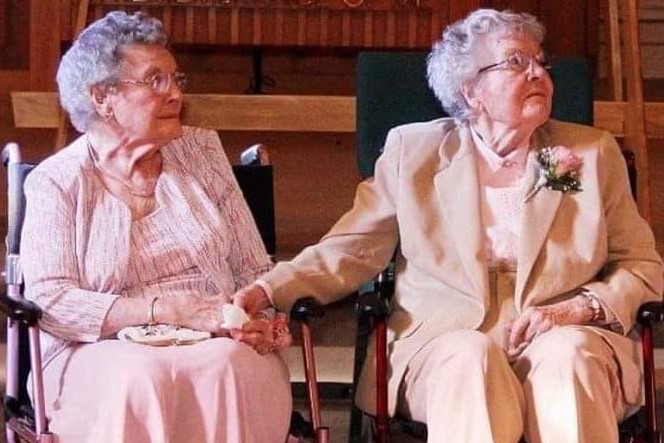
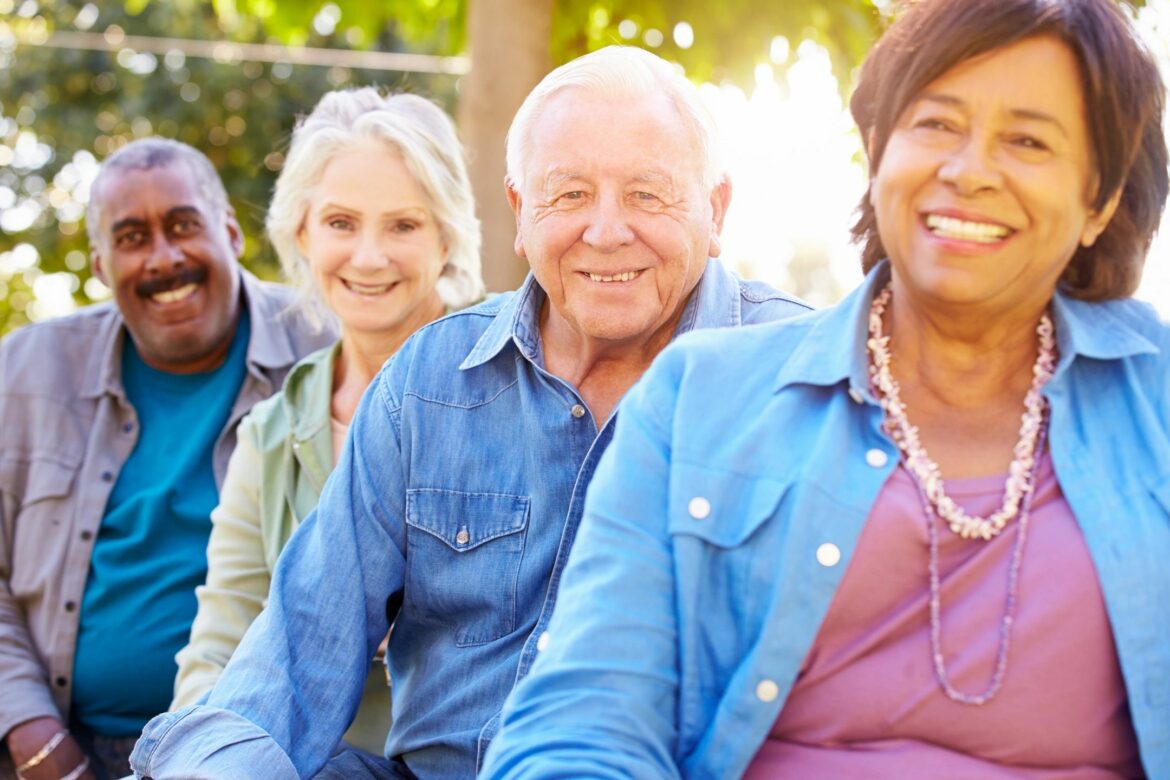
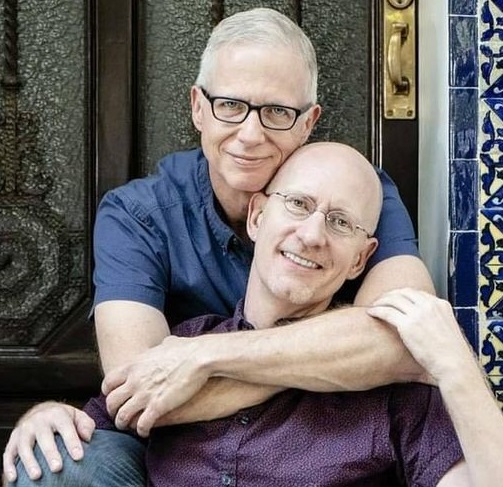
Aging Back Into the Closet
Lesbian, gay, bisexual, transgender, and
queer older adults are pioneers who
bravely pushed open the doors to coming
out. It is unconscionable that many of
these leaders of social justice are
forced to retreat into the closet as
they age. The troubling reality is that
the US lacks a complete understanding of
the LGBTQ senior community and is
particularly unprepared for the needs of
LGBTQ older adults at the intersection
of multiple disadvantaged populations,
such as LGBTQ seniors who are people of
color, disabled, living with HIV/AIDS,
undocumented immigrants or
socioeconomically marginalized. Many
LGBTQ seniors fear that the health-care
system is judgmental and have
experienced discriminatory care or lack
access to culturally competent ageing
services. To address this crisis, the US
must adopt a new perspective that
emphasizes health, rather than just
health care. All sectors of society must
come together with a renewed sense of
social responsibility that focuses on
social determinants of health. They
need to adopt a holistic view of
everyday factors that impact the health,
economic and social well-being of LGBTQ
seniors.
Eliminating LGBTQ health disparities and
providing more personal and equitable
care to LGBTQ populations depends on
overcoming a primary obstacle: Many
LGBTQ patients are uncomfortable
discussing sexual orientation or gender
identity with health-care providers, and
many providers need training on these
discussions. Consequently, LGBTQ
patients often forgo prevention
screenings or seek care late in their
illnesses or diseases, and clinicians
lack information that helps in making a
diagnosis and recommending treatment.
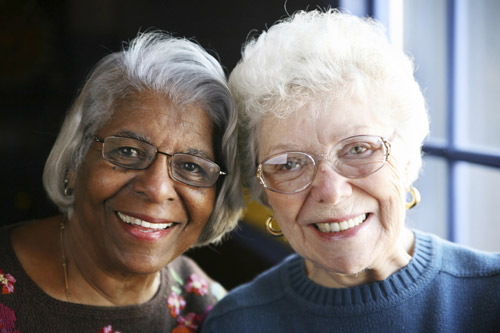
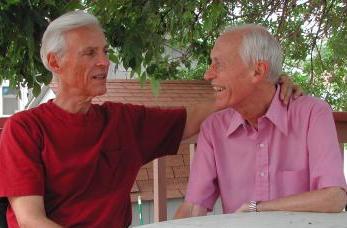
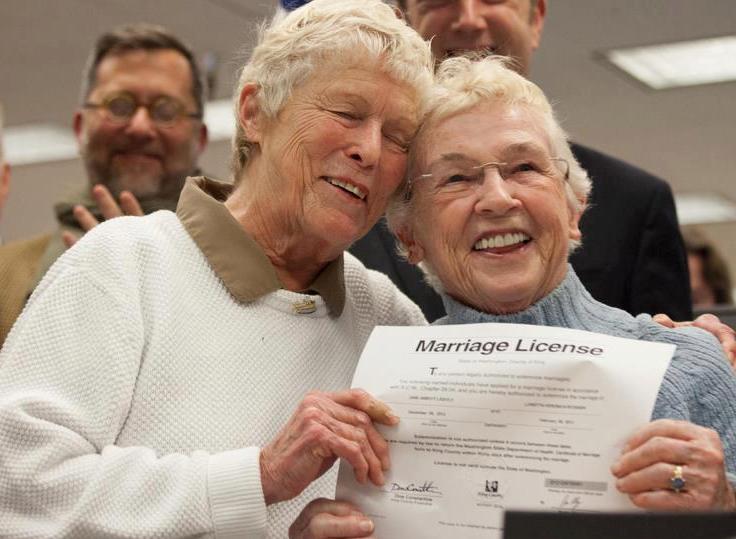
LGBTQ Aging:
A Question
of Identity
Story Corps: Two Retired Vets Celebrate
Love
Gen Silent: LGBTQ Aging Documentary
Pandemic Inspires 90-Year-Old to Finally
Come Out as Gay
Now You See Me: Film About Group of
Elder Lesbians
Gray Gays: Aging as an LGBTQ Adult
Williams
Institute Report: LGBTQ Aging
Advocate:
Portraits of LGBTQ Seniors
Video Talk: Old Gays Share Their Coming
Out Stories
Old Lesbians
Organizing for Change
Video: Silent Pioneers
Research has found that more than one
fifth of LGBTQ older adults have not
disclosed their sexual orientation or
gender identity status to their primary
physician. Almost 20 percent of lesbian,
gay, and bisexual seniors and more than
50 percent of transgender seniors fear
that they will be treated differently,
and almost 35 percent of lesbian, gay,
and bisexual seniors and more than 60
percent of transgender seniors have
encountered a health-care provider who
was unaware of their health needs. These
factors contribute to LGBTQ adults (24
percent) being more likely than
heterosexuals (18 percent) to receive
services in emergency rooms.
Medical care influences only about 10
percent of health status. The truly
powerful determinants are genetics,
behaviors and social circumstances. For
many LGBTQ seniors, numerous factors
complicate the path to health security,
such as low likelihood of biological
family assistance during health crises,
lack of health insurance or same-sex
partner retiree benefits, low incomes
and high rates of poverty, geographic
locations without LGBTQ-welcoming
support systems, and social isolation
for those who are single, live alone or
do not have children. Addressing these
determinants is critical to finding
sustainable solutions for responding to
LGBTQ older adults' health needs. There
are inspiring examples of upstream
approaches to addressing the health
needs of the LGBTQ senior community.
They represent advancement of social
justice for the LGBTQ community, yet we
have more to do. We have what it takes:
skills, knowledge, caring, determination
and, most importantly, a passion for
doing the right thing. Now is the time
for all members of society to come
together to help prevent LGBTQ older
adults from ageing back into the closet.
[Source: Claire Pomeroy, Lasker
Foundation, January 2014]
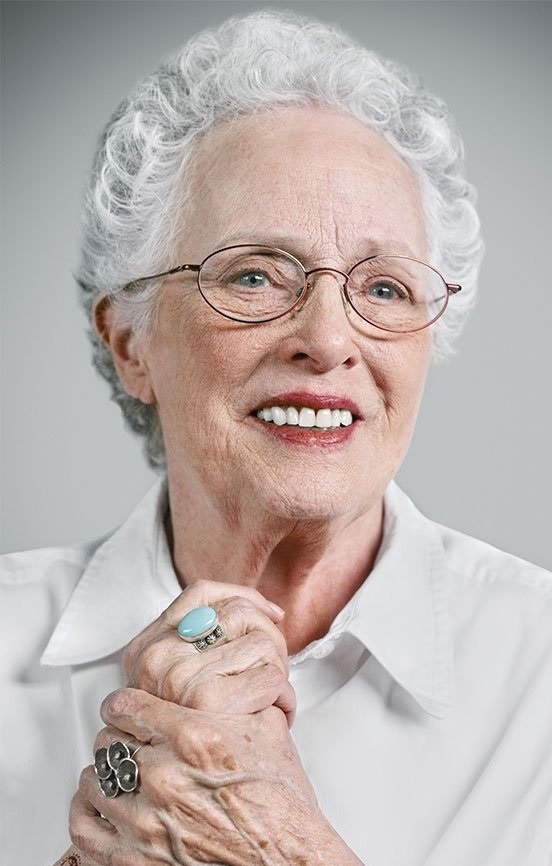
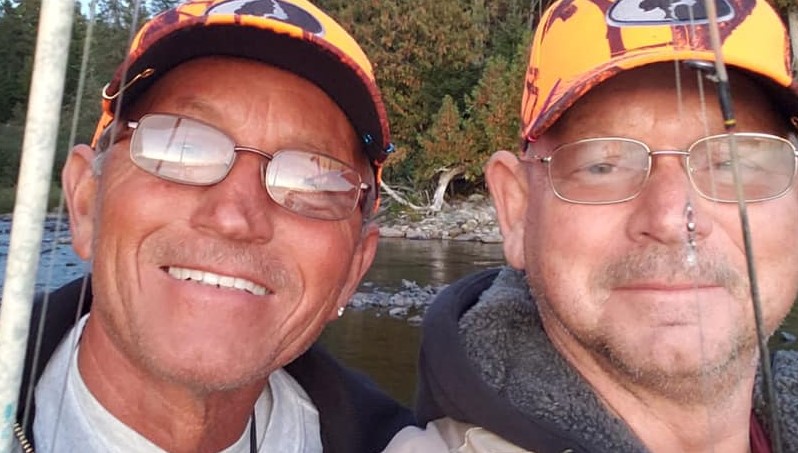
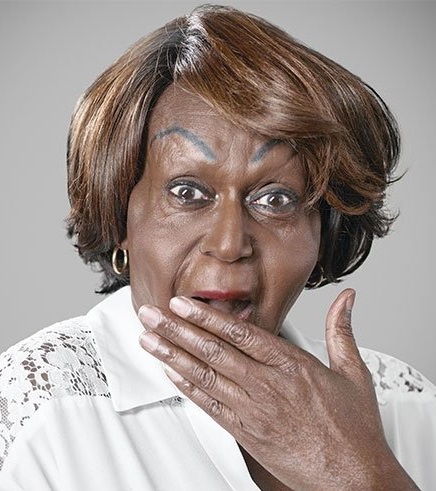
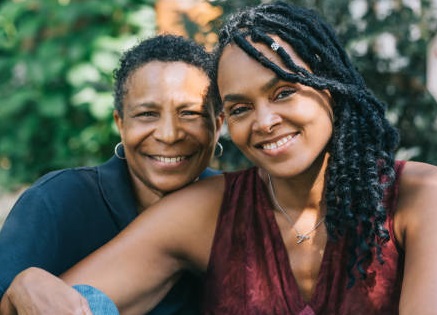
Stonewall Generation Shares Perspectives
LGBTQ
Seniors: The Joy of Being Out
Frightening and Encouraging: Being an
Older LGBTQ Person
What it's Like to be Older, Gay,
Unmarried
Gay and Bisexual Men Enjoy Active Sex Lives in Their 70s, New Study Reveals
Older Lesbians: Keepers of Rich History
of the Lives of Gay Women
Elderly Gay
WWII Veteran
Attacked and
Robbed
Never Have I
Ever: Elder
Gay Men
Having Fun
Ted Brown:
Gay Activist
Who Spent 50
Years
Fighting for
LGBTQ Rights
Double
Lives: LGBTQ Elders Tell Their Stories
Ageism Takes Heavy Toll on LGBTQ Seniors
Video Talk:
Together for
54 Wonderful
Years
90 Year Old
Man Reveals
Long
Struggle
With Coming
Out

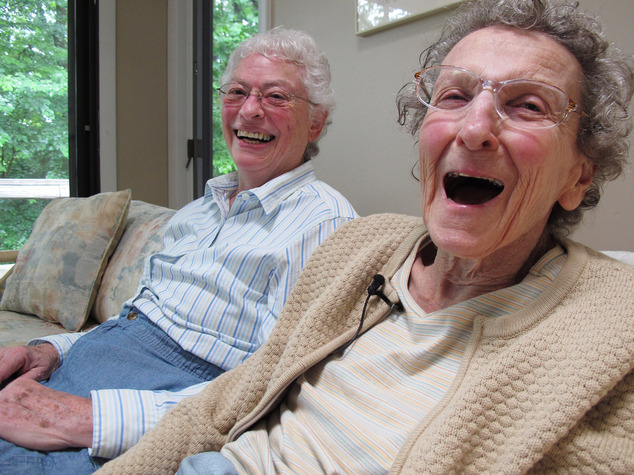
Lessons on Resilience From
LGBTQ Elders
PBS: Finding
Care For
LGBTQ Seniors
For Many Gay
Men, It’s
The
Loneliness
That’s A
Killer
HRC:
Honoring
LGBTQ Elders
Day
LGBTQ
Seniors Tell Their Stories
Info: LGBTQ
History
Center for
Positive Aging: Resources for Older
LGBTQ Persons
Never Have I Ever: Elder Lesbians Having
Fun
Advocate:
No One Will Care for LGBTQ Seniors But
Themselves
Elder Lesbians Share Coming Out Stories
Menopause Rhapsody - Parody Song for
Every Aging Queen
Queer Elders Tell Us
About the Greatest Loves of Their Lives
Resources
for
Transgender
Seniors
APA Info:
LGBTQ Aging
Facts
LGBTQ Conference on Aging
Gay seniors, like seniors in general,
worry about safe housing, good health
care and having enough money in
retirement. But according to those who
attended the first White House
conference devoted to gay, lesbian,
bisexual, transgender, and queer ageing,
held at the University of Miami in May
2012, they also face unique obstacles
because of discrimination, health-care
inequities and fear of retaliation. The
White House LGBTQ Conference on Aging
was the first-ever conference dedicated
to lesbian, gay, bisexual, transgender,
and queer (LGBTQ) ageing issues.
Sponsored by SAGE (Services and Advocacy
for GLBT Elders), it was hosted by The
White House Office of Public Engagement,
in partnership with the University of
Miami Center on Ageing. It met at the
University of Miami Miller School of
Medicine, where it provided advocates,
community leaders, and members of the
public an opportunity to engage with the Obama Administration on the health,
housing, and security needs of ageing
members of the LGBTQ community.
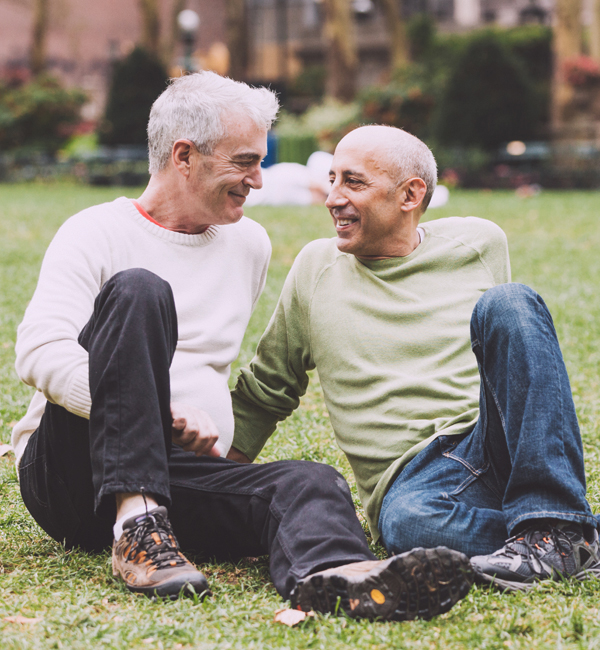
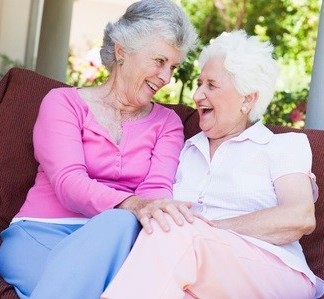
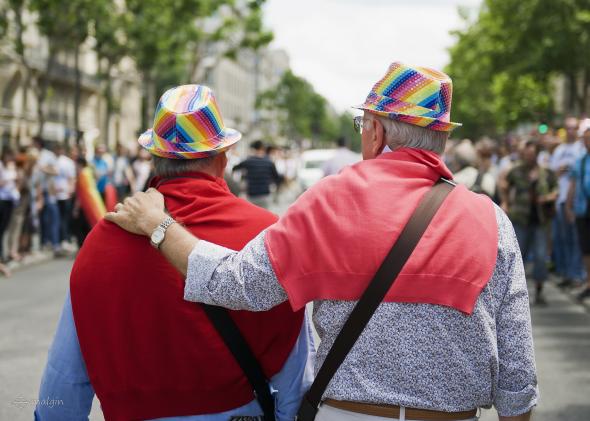
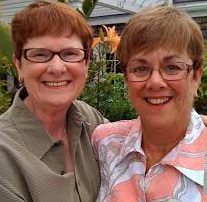
LGBTQ Elders Show Resiliency Despite
Barriers
Video Talk: Old Gays Share Their Coming
Out Stories
Older Queer Voices: The Intimacy of
Survival
Sage Advice to Young Queers From a Gay
Elder
Williams
Institute Report: LGBTQ Aging
Center for
Positive Aging: Resources for Older
LGBTQ Persons
Elder Lesbians Try New Lesbian Slang
AARP Pride: LGBTQ Advocates See Hurdles
Ahead
Gen Silent: LGBTQ Aging Documentary
78-Year-Old Man and 13-Year-Old Boy Talk About Being Gay
Elderly LGBTQ People
Despite advances in LGBTQ civil rights,
many older adult care providers never
stop to consider that their older
clients may be lesbian, gay, bisexual,
transgender, and queer (LGBTQ). And
sometimes those who do know may not know
how to provide services in
culturally-sensitive ways. As a result,
LGBTQ older adults often avoid seeking
needed services out of fear of
discrimination. The tendency for LGBTQ
older adults to go "back in the closet"
is particularly pronounced in situations
where they are most vulnerable, such as
when accessing home health care or
residing in assisted living or
residential care facilities. One study
indicated that LGBTQ older adults may be
as much as five times less likely to
access needed health and social services
because of their fear of discrimination
from the very people who should be
helping them.
This type of social isolation has an
enormous impact in the health and
well-being of LGBTQ older adults. With
LGBTQ older adults twice as likely to
live alone than heterosexual older
adults, more than four times as likely
to have no children, the informal
caregiving support we assume is in place
for older adults may not be there for
LGBTQ elders. LGBTQ people face a
number of particular challenges as they
age. They often do not have access to
adequate health care, affordable housing
and other social services that they need
due to institutionalized heterosexism
and transphobia. Mainstream senior
providers have limited information or
training in how to appropriately work
with and serve our diverse communities.
Existing regulations and proposed policy
changes in programs like Social Security
or Medicare, which impact millions of
LGBTQ elders, are discussed without
LGBTQ views and interests as part of the
debate.
LGBTQ
Seniors Tell Their Stories
Today
Show: Four Famous Old Gay Guys
LGBTQ
Seniors: The Joy of Being Out
Frightening and Encouraging: Being an
Older LGBTQ Person
Bill and John: More Than Ever
Lessons on Resilience From
LGBTQ Elders
Old Lesbians
Organizing for Change
Aging in Equity: LGBTQ Elders in America
LGBTQ Aging: A Question of Identity
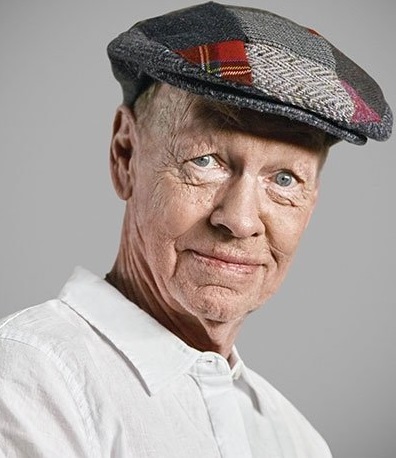
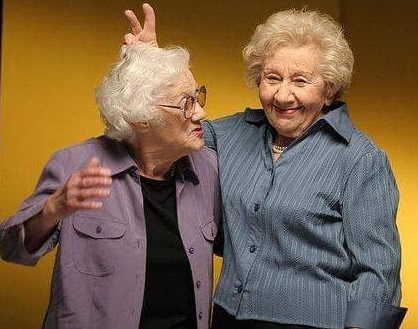
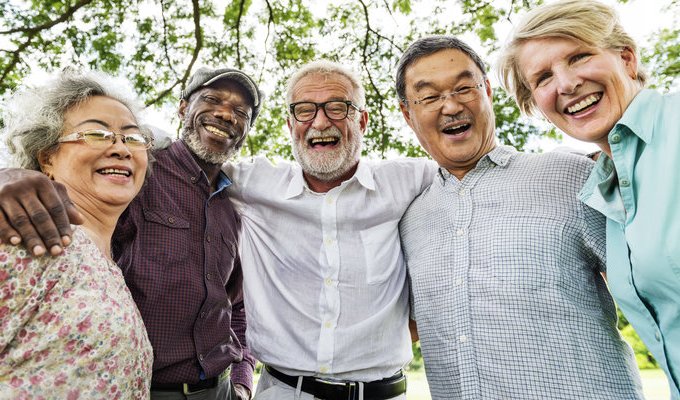
Wellness Challenges of LGBTQ Seniors
There are many challenges faced by the
Lesbian, Gay, Bisexual, Transgender, and
Queer elderly community. Family and
support networks can be critical to the
wellbeing of the elderly. Due to
homophobia and other factors, LGBTQ
elderly may not have strong ties to
traditional social support networks such
as adult children to provide care,
extended family or faith-based support,
and frequently end up relying on friends
and service agencies.
A recent Met Life survey noted that 27%
of LGBTQ baby boomers reported great
concern about discrimination as they age
and less than half expressed strong
confidence that they will be treated
“with dignity and respect” by healthcare
professionals. Financial challenges
include inability to transfer assets
such as social security, Medicare,
Medicaid and pensions to the surviving
partner. The same Met Life survey
indicated that 51% of LGBTQ Baby Boomers
indicated they have yet to complete
wills that spell out their long term and
end of life wishes. This is of concern
since LGBTQ partnerships frequently are
not recognized legally in matters of
health care decisions and finances.
Center for American Progress: Protecting
our LGBTQ Elders
University of North Dakota: Resources
for the Aging LGBTQ Community
Controlling
Complications
and Aging
Gracefully
with HIV
The Old Gays
on TikTok
Resources
for Transgender Seniors
Richard and John: Elderly Couple
LGBTQ Celebs in Their 50s Who Are
Getting Better With Age
Gray Gays: Aging as an LGBTQ Adult
Elder Lesbians Watch Hayley Kiyoko
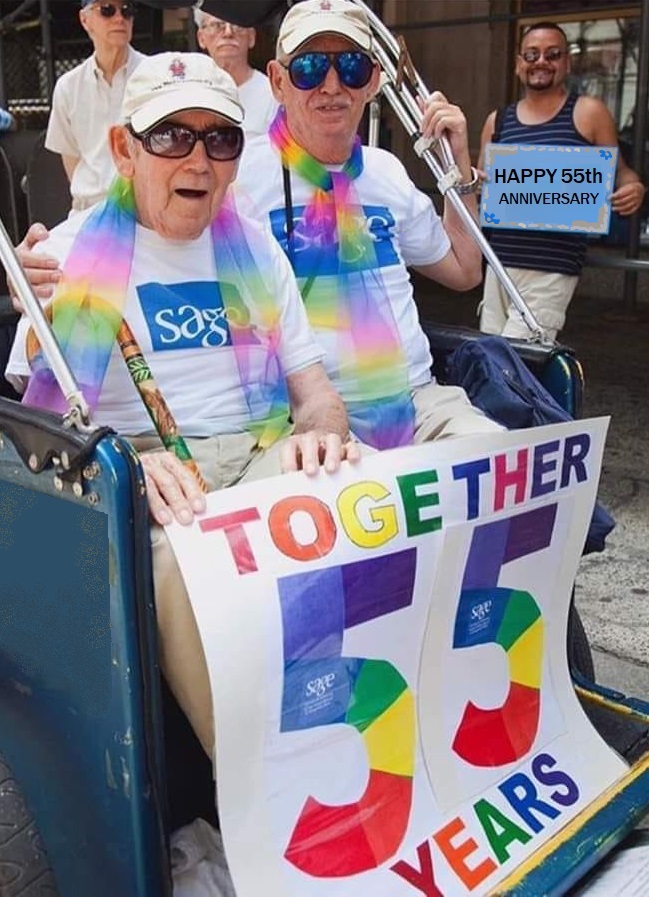
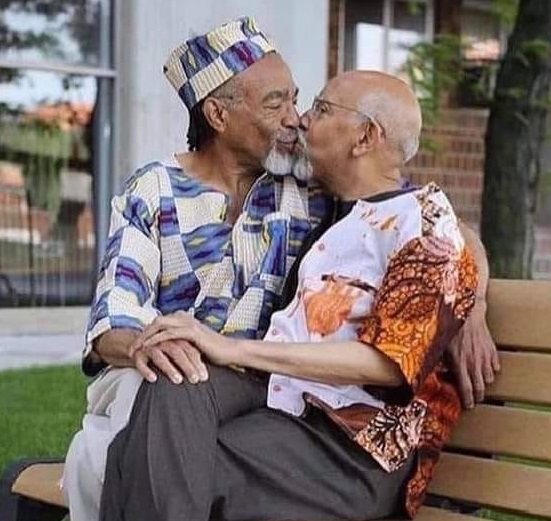
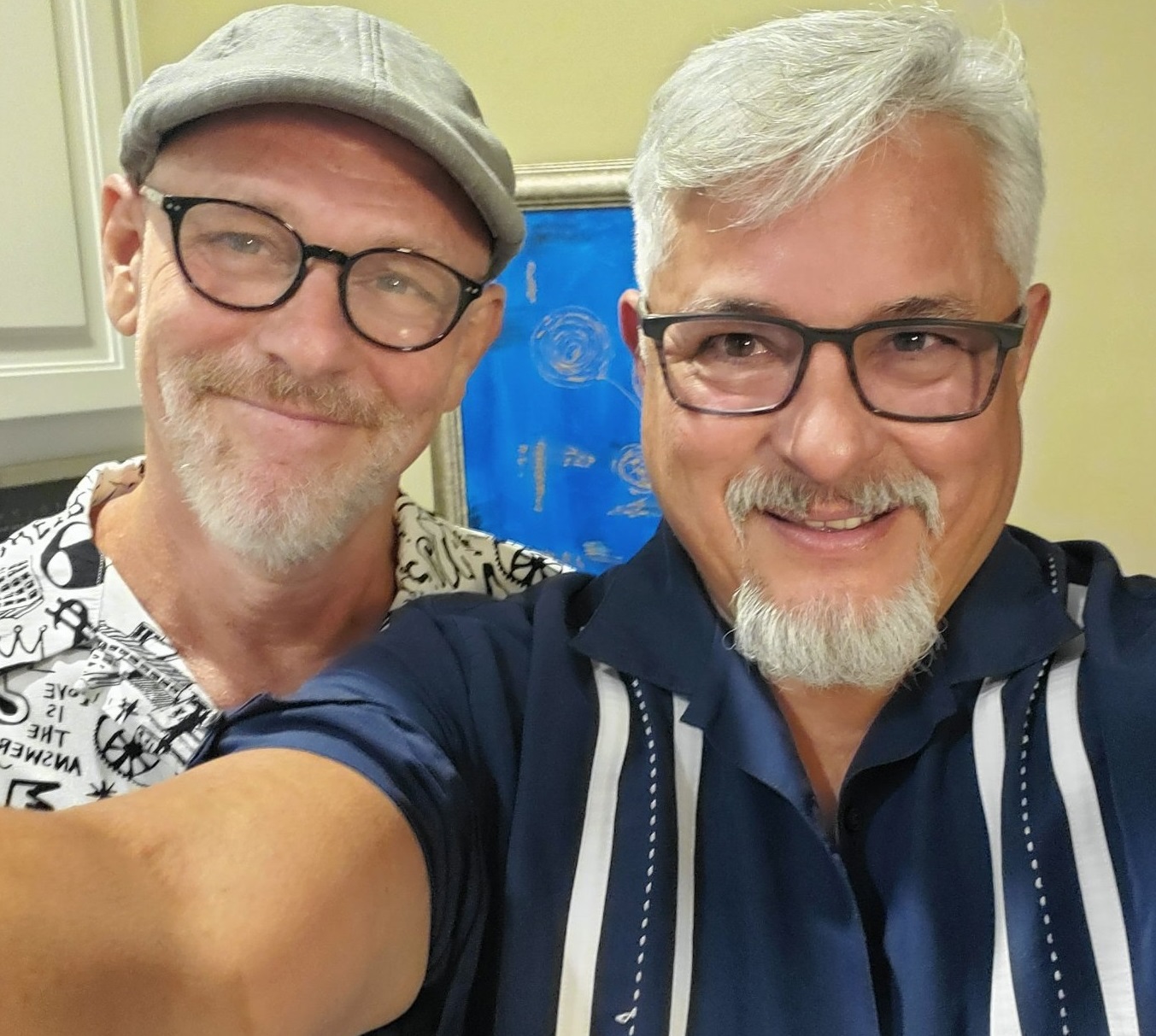
Message for LGBTQ Seniors
If any of you are at least 50 or older,
you, along with me, can remember how
important it was to keep your gay
secret. Of course, before the 70's there
weren't any polite words like gay. All
the standard insults were there. Being
homosexual was the epitome of perversion
and degradation. It was something never
spoken of in any type of polite or
common conversation. For example,
before the early 70's, New York had a
law that prohibited any bar or club from
serving alcohol to a homosexual. Of
course, most gay men passed easily.
Imagine not being able to legally get a
drink in a public bar like the other
straight patrons. This was the law that
the police used to back up their bar
raids. When things were slow out on the
streets, they would just get prepared
with the paddy wagons and go raid a
couple of known gay hangouts, arrest and
fine the patrons, close and fine the bar
owner, and call it a night. Imagine
kids, being hustled out of a bar and
arrested for being gay and having a
drink! In Atlantic City there were gay
clubs but you couldn't dance or touch in
any fashion. Even when dancing became
permissible, you were not allowed to
touch because that would get a club
closed down and fined. Try to imagine
it.
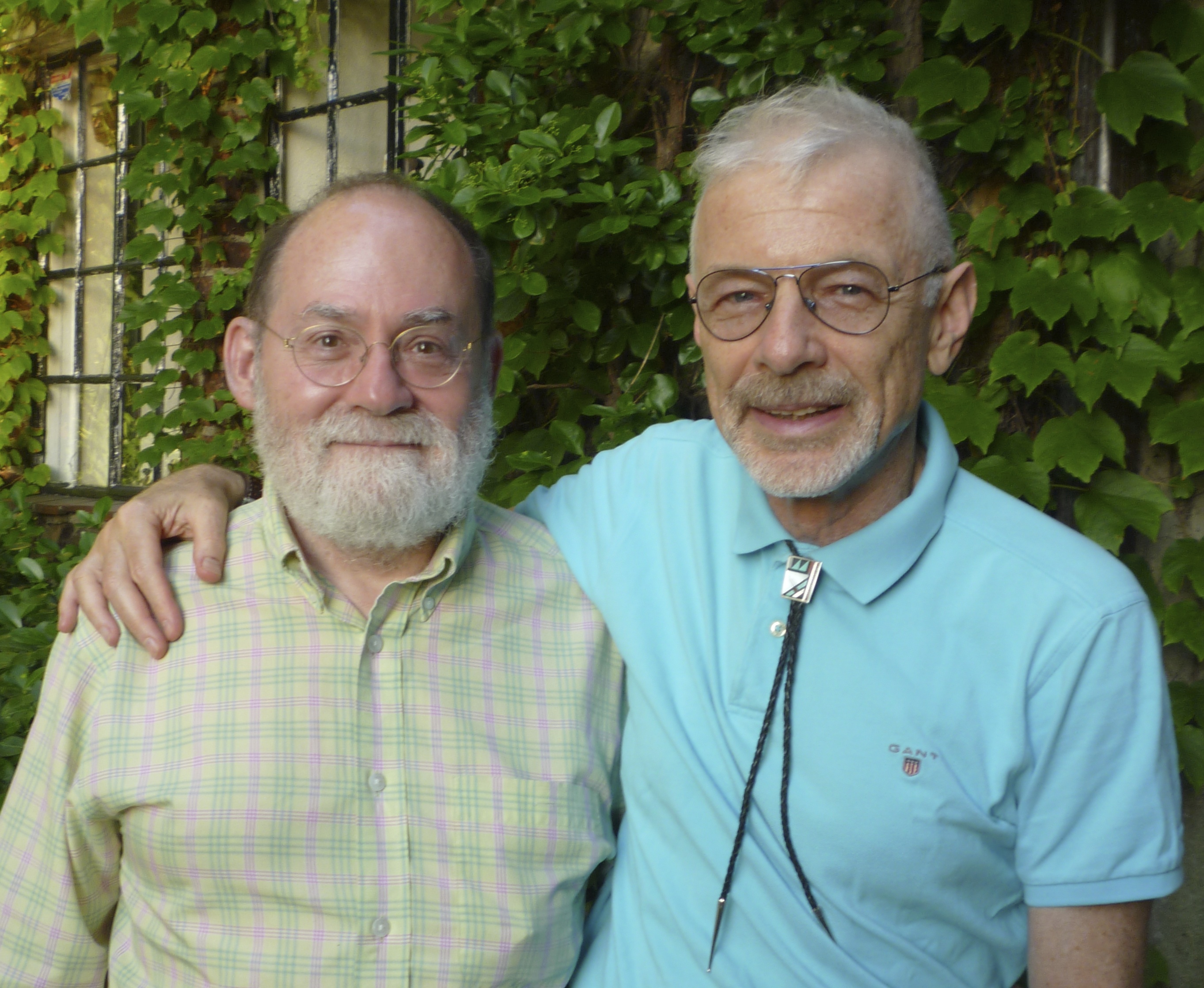
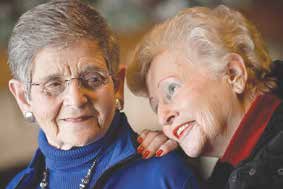
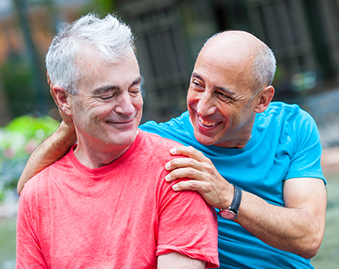
Older Lesbian Couple: Happy for 30 Years
Video Talk: Old Gays Share Their Coming Out Stories
Ageism Takes Heavy Toll on LGBTQ Seniors
Video: This is What 54 Years of Unwavering Love Looks Like
Lessons on Resilience From LGBTQ Elders
Video: Silent Pioneers
Williams Institute Report: LGBTQ Aging
Richard and John: Elderly Couple
Things Older Adults Can Do to Stay Connected and Overcome Isolation
One night in 1969 (yes only 30 years
ago) in New York's Greenwich Village at
the Stonewall Inn, the police pulled one
of their many gay bar raids and all hell
broke loose. The fight started and
continued for several nights. Gay
Liberation as a national struggle was
born. I remember in 1972 (I was 22 at
the time) tuning in to The David
Susskind Show because he was having a
panel of lesbians on to discuss being
gay and gay liberation. You young people
won't remember but, at that time, talk
shows were not like they are today. The
David Susskind show was a serious show
with serious and informative
discussions. The audiences at the talk
shows were adult and quiet and sometimes
allowed to ask questions at specific
times. There was nothing like the
ridiculous carrying-on that you see all
the time on the Jerry Springer Show and
the like. Anyway it was the first time
I had ever seen such an open discussion
on TV. Where I grew up, I was absolutely
certain I was the only gay man within
many miles. I watched that show on every
channel it appeared for a whole week.
Being that there was no such thing as a
video recorder, I taped it on cassette
tape. I still have it and listen to it
at least once a year. I had to make a
copy of it about 3 years ago as the tape
was getting too old and fragile. It
still stirs me like it did 30 years
ago.
Things have changed and we are not so
much the filthiest things on the planet.
However, as we all hear and see all the
time now, the hatred is still very much
alive and as vicious. It's just all out
in the open. The old myths about
"queers" are still going strong. Kids,
let me reassure you that these
self-righteous bastards will do anything
to send us back into nonexistence. We
see that in the news all the time. This
year Oregon will be voting on an antigay
measure for the 32nd time. They are
relentless and we have to be also. Don't
take it for granted that someone else
will do the fighting for you. We all
need to do this together in any legal
fashion that we are able. We deserve
everything that the law grants to them.
Don't wait expecting them to someday get
nice to us. Your society still would
rather you didn't exist. And for us
older people, we must not allow
ourselves to just sit back figuring that
we don't have to bother because it's up
to the younger folks. They need our
voices as much as we need theirs. Do
something to help us all become equal
citizens.
[Source: Gianni, Tampa Bay Coalition, 1999]
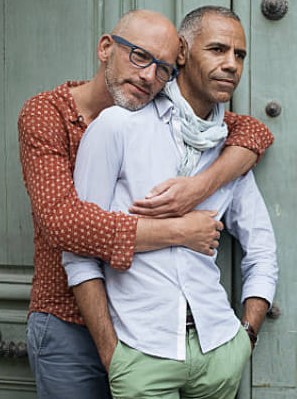
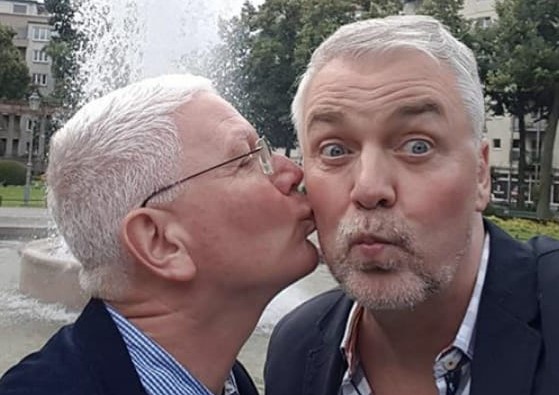
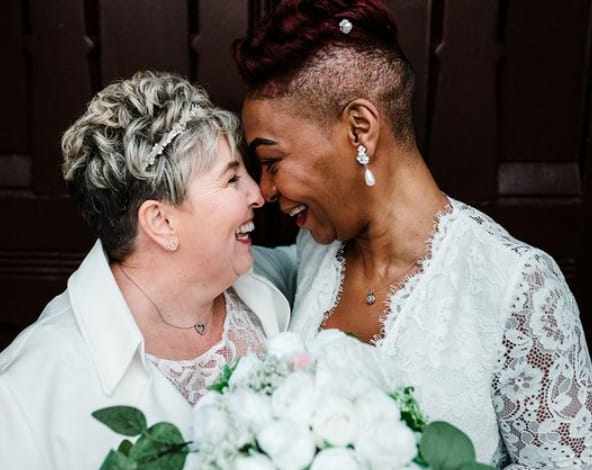
Elder Lesbians Give Advice to Young Lesbians
Same Sex Couples Tell Us What it's Like to be Legally Married
LGBTQ
Seniors: The Joy of Being Out
Gay and Lesbian Association of Retiring Persons
Edith & Thea: A Love Story for the Ages
Center for Positive Aging: Resources for Older LGBTQ Persons
Plight of Elder LGBTQ People
Info:
LGBTQ Retirement Strategies
Challenges of Coming Out Late in Life
Frightening and Encouraging: Being an Older LGBTQ Person
Advocate:
No One Will Care for LGBTQ Seniors But Themselves
Housing for LGBTQ Elders Should Be a Priority
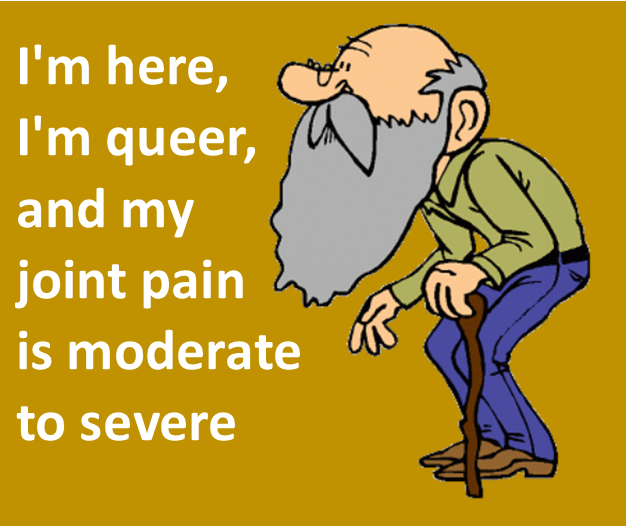
Aging in Equity
“We’re coming out of an experience of
being badly treated in society, and
there’s no sense that treatment is going
to get any better when you get older and
more vulnerable within the system.”
A Vision of Healthy Aging
The growth of the nation’s older
population is among the most significant
demographic shifts taking place in the
United States today. The “graying of
America” has profound implications for
health care and other senior services.
As this issue takes center stage, a
greater emphasis is being placed on the
notion of “healthy ageing” or “successful
aging."
Access to appropriate housing, quality
health care, and supportive services are
the main ingredients of ageing well, and
the exponential rise in the number of
older Americans will challenge and
transform the systems charged with
providing these services. At the same
time, the growing number of lesbian,
gay, bisexual, transgender, and queer (LGBTQ)
seniors (and their increasing degree of
openness and demands for fair and equal
treatment) are further challenging the
elder care system to meet the needs of
all seniors, sparking transformations
that are long overdue.
Where Do Gays Retire?
Mental Health Disparities in Older LGBTQ Populations: Research Roundup
Today Show: Four Famous
Old Gay Guys
Gay and Lesbian Association of Retiring
Persons
Care and Aging With Pride
Stonewall Generation Shares Perspectives
SAGE: Services & Advocacy for LGBTQ
Elders
Never Have I Ever: Elder Gay Men Having
Fun
LGBTQ Aging Project
National Resource Center on LGBTQ Aging
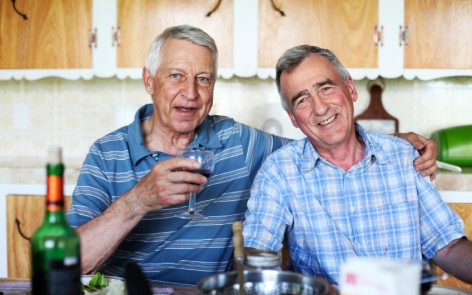
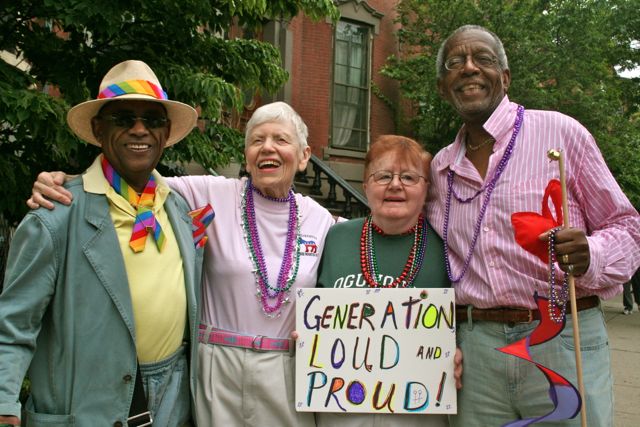
Society must adopt a positive vision of
“successful ageing” for LGBTQ elders,
which encompasses a variety of
quality-of-life issues that affect all
senior citizens, regardless of their
sexual orientation or gender identity.
These quality-of-life issues include the
ability to:
--Maximize
one’s physical and emotional well-being
throughout the ageing process.
--Maintain
the highest possible degree of autonomy
and independence for as long as
possible.
--“Age
in place” in one’s own neighborhood or
community within a context of respect,
safety, and support.
--Remain
actively engaged with social networks,
including chosen and biological
families.
--Pursue
the social, recreational, intellectual,
spiritual, and creative activities that
provide a sense of stability,
fulfillment, and vibrancy throughout the
life cycle.
This information is designed to help
funders recognize and resource this
vision for healthy ageing within the LGBTQ community, which faces numerous
barriers to accessing the services and
support systems that promote “successful
ageing” in our society.
Before describing these barriers and
concerns, it is important to first
understand the broader context of ageing
in America.
LGBTQ Seniors: Depression and Loneliness
Gray Gays: Aging as an LGBTQ Adult
Gay and Bisexual Men Enjoy Active Sex Lives in Their
70s, New Study Reveals
Queer Elders Tell Us About the Greatest
Loves of Their Lives
Controlling Complications and Aging
Gracefully with HIV LGBTQ MAP: Improving the Lives of LGBTQ Older Adults
Bill and John: More Than Ever
LGBTQ
Seniors: The Joy of Being Out
LGBTQ Celebs
in Their 50s
Who Are
Getting
Better With
Age
Frightening and Encouraging: Being an
Older LGBTQ Person
Video: Silent Pioneers
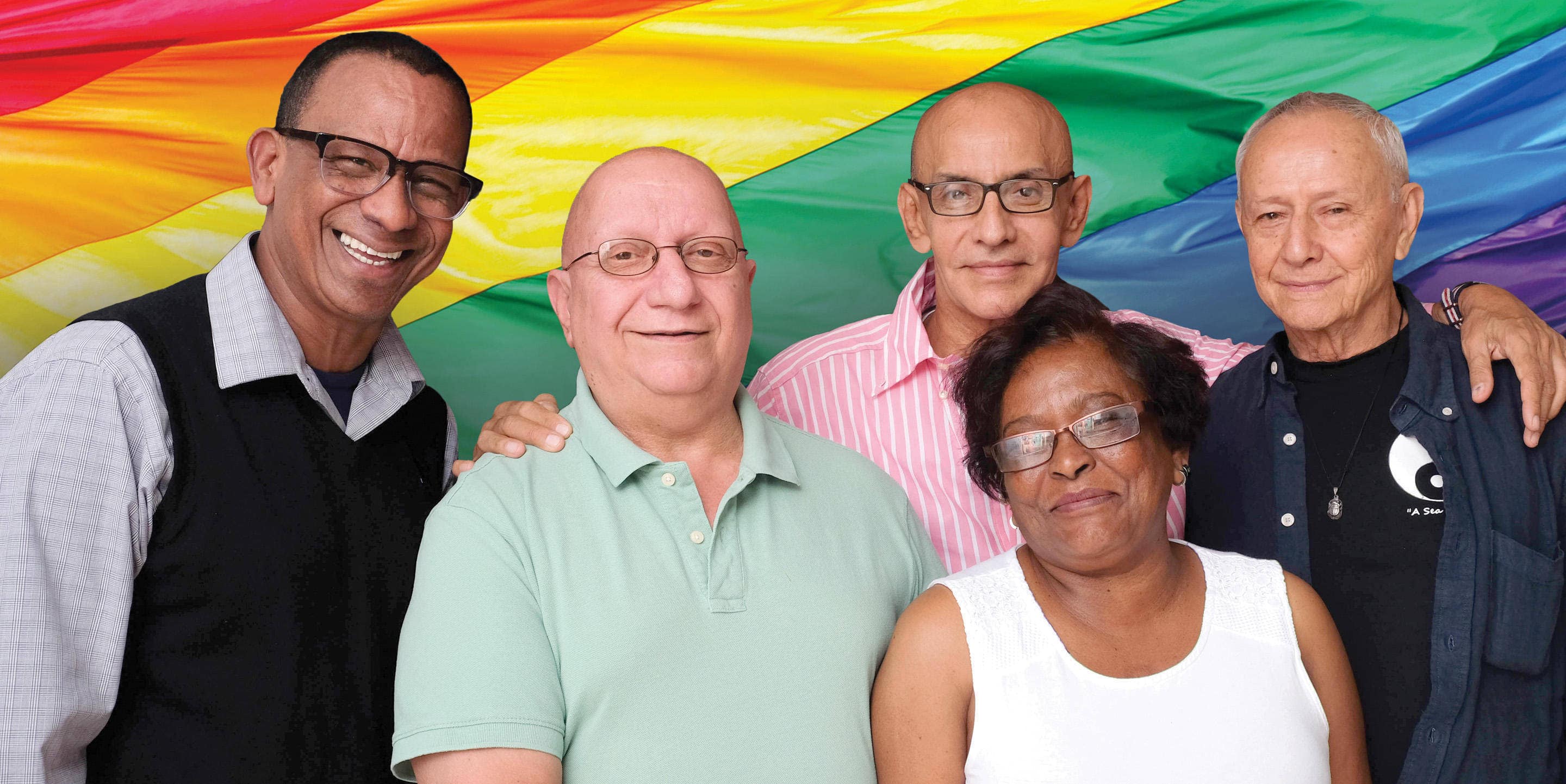
Changing Demographics: The Graying of America
In 2000, there were an estimated 35
million people age 65 or older in the
United States, representing 12 percent
of the U.S. population, up from 8
percent in 1950. In 2010, the post–World
War II baby boom generation will begin
to turn 65, so that by 2030, there will
be about 70 million older persons, more
than twice as many as in 2000. By 2030,
people age 65 and older are expected to
represent 20 percent of the U.S.
population. Individuals age 85 and older
are the fastest growing segment of the
older population. The increasing size of
this age group has major implications
for the future of this country’s health
care system, because these individuals
tend to be in poorer health and require
more services than elders in their 60s
and 70s (a group sometimes referred to
as the “younger old”).
In 2000, an estimated 2 percent of the
US population was 85 or older. By
2050, the percentage of persons in this
age group is projected to more than
double to nearly 5 percent of the
population. The US Census Bureau
projects that the population of persons
age 85 and older could grow from about
four million in 2000 to 19 million by
2050. Increasing life expectancy rates
contribute to the growth of the older
population. In 1900, life expectancy at
birth was about 49 years. By 1960, life
expectancy had increased to 70 years.
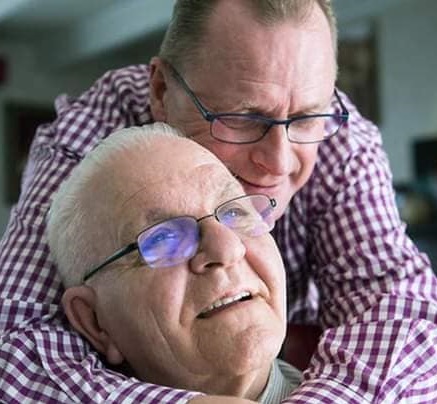
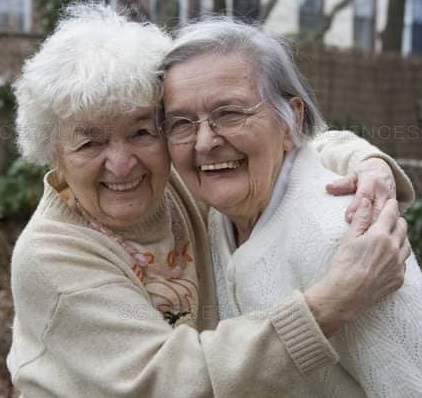
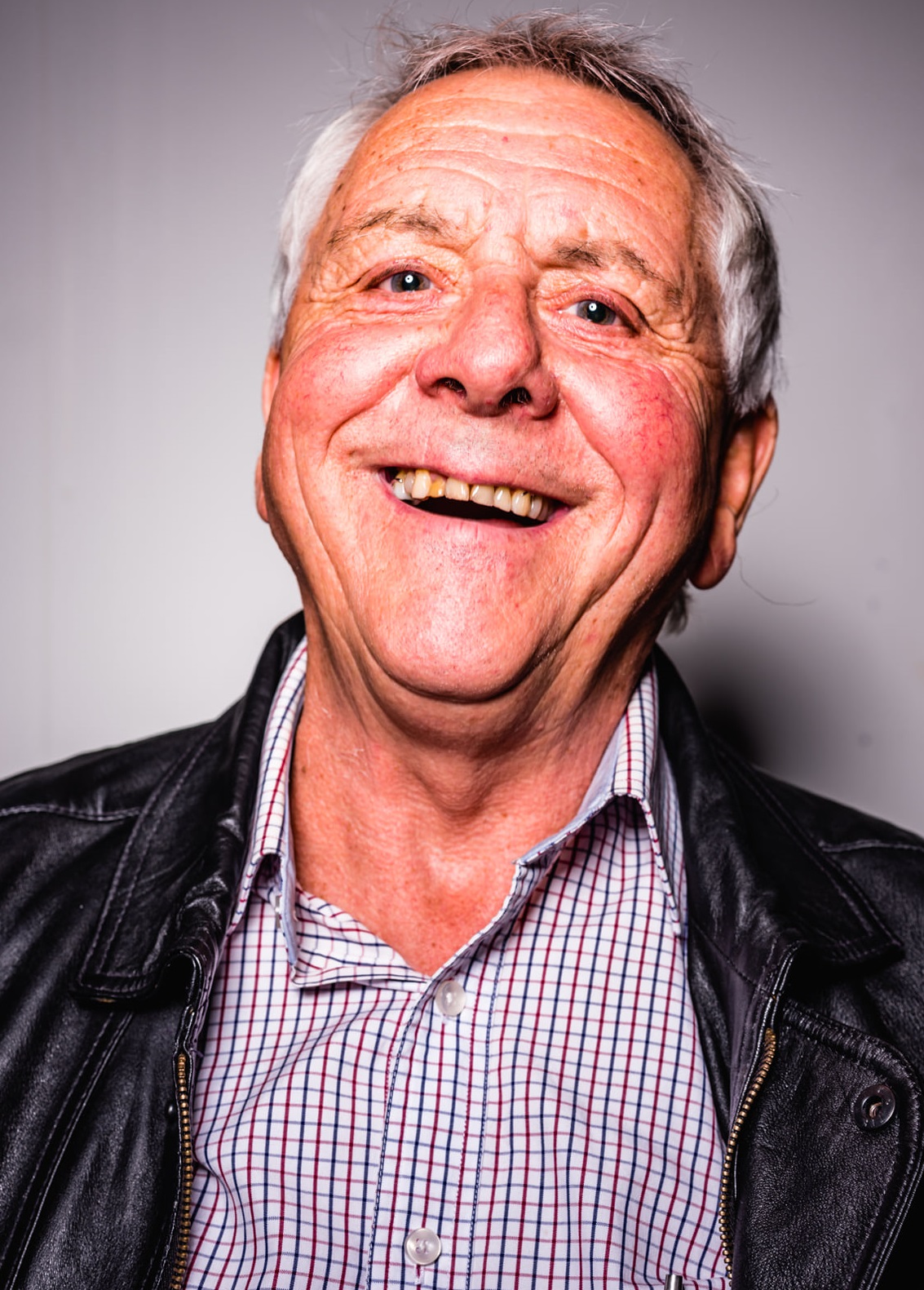
LGBTQ
Seniors Tell Their Stories
Gay and Lesbian Association of Retiring
Persons
Need to Build More LGBTQ Senior Housing
Elderly Gay Man Recalls His Visit to a
Psychologist in 1948
AARP Launches Website for Older LGBTQ
Americans
Gay Seniors: Mental Health and Stress
In 2001, life expectancy at birth
reached a record high of 77.27 years.
Life expectancies at 65 and 85 have also
increased. Under current mortality
conditions, people who survive to age 65
can expect to live an average of nearly
18 more years, while those who survive
to age 85 can expect to live an average
of seven years (for women) and six years
(for men). In broad terms, these life
expectancy rates not only amount to an
“elder boom,” but to large numbers of
much older individuals with commensurate
health care and other ageing-related
needs. On an individual level, these
rates will translate into much longer
periods of retirement for individual
seniors, and more extended periods of
reliance on housing, health care, and
social services geared to their needs.
Older Americans are also growing more
racially and ethnically diverse. In
2000, an estimated 84 percent of persons
age 65 and older were non-Hispanic
white, 8 percent were non-Hispanic
black, 6 percent were Hispanic, 2
percent were Asian/Pacific Islander, and
less than 1 percent were Native
American/Alaska Native. By 2050, it is
projected that approximately 64 percent
of persons age 65 or older will be
non-Hispanic white, 16 percent will be
Hispanic, 12 percent will be
non-Hispanic black, and 7 percent will
be Asian/Pacific Islander. Services for
America’s seniors will need to take this
growing diversity into account as they
strive to provide services that truly
meet seniors’ needs.
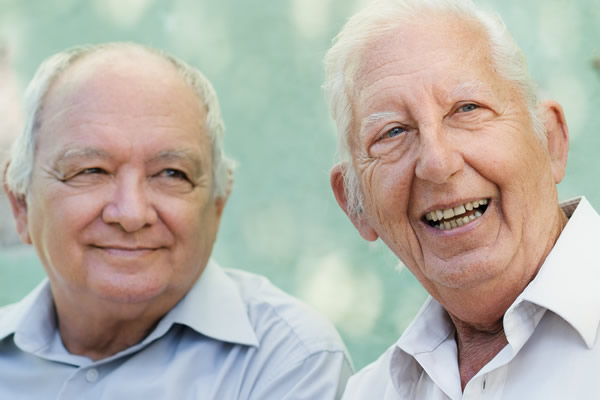
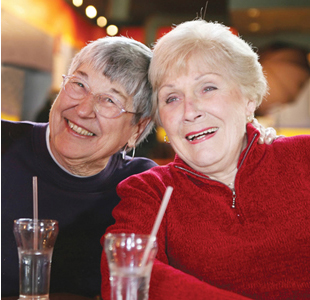
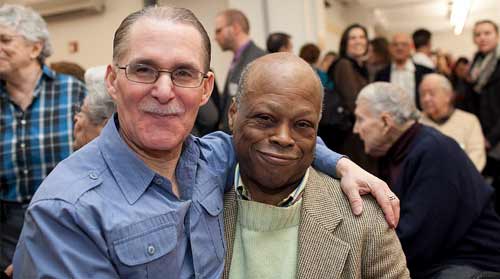
Resources
for Transgender Seniors
SAGE Publication: Practical Guide for
LGBTQ Elders
Double
Lives: LGBTQ Elders Tell Their Stories
Advocate: Politics of Caring for Our
Queer Elders
Richard and John: Elderly Couple
Stonewall Generation Shares Perspectives
Core Issues for LGBTQ Elders
A contemporary understanding of
culturally competent service delivery
for seniors must include LGBTQ issues.
While LGBTQ elders and their
heterosexual counterparts contend with
many of the same ageing-related issues
(including challenges to their health,
independence, and mobility; social
isolation; the loss of peers and loved
ones; and financial concerns, among
others), LGBTQ seniors face special
difficulties as well. These seniors are
“twice-hidden” due to social
discrimination on two levels: ageism and
homophobia or heterosexism. LGBTQ
seniors often face antigay or gender
discrimination by mainstream elder care
providers that renders them “invisible”
and impedes their access to vitally
important services. At the same time,
LGBTQ elders frequently confront ageism
within the LGBTQ community and the
organizations created to serve the
community’s needs.
Many older LGBTQ people respond to the
pressures of discrimination by
concealing their sexuality in settings
where being “out of the closet” might
hinder their access to quality care or
even endanger their well-being. For many
LGBTQ elders in their 70s and 80s,
“passing” as heterosexual has been a
lifelong survival strategy, one they are
likely to carry with them when seeking
long-term care, entering a nursing home,
or speaking with a health care provider.
This dynamic prevents many LGBTQ seniors
from openly accessing the very programs
that could be most beneficial to them,
if only these programs were perceived as
safe places to turn for help and if they
were culturally responsive to LGBTQ
elders’ needs.
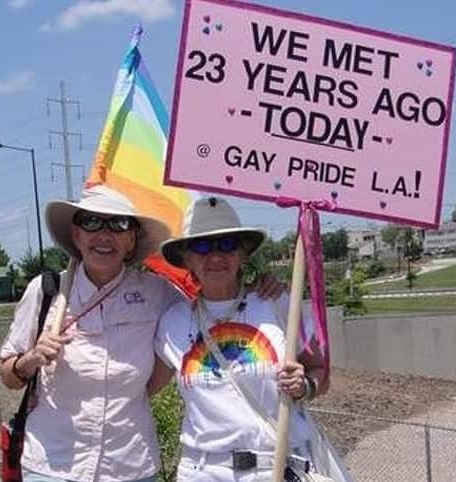
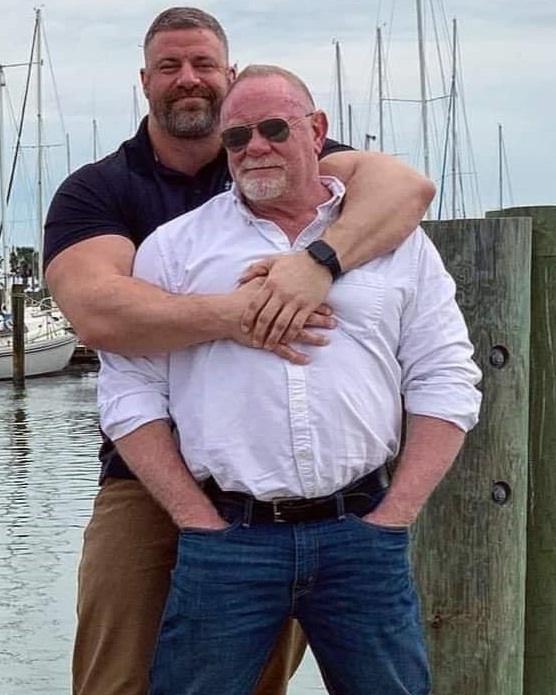
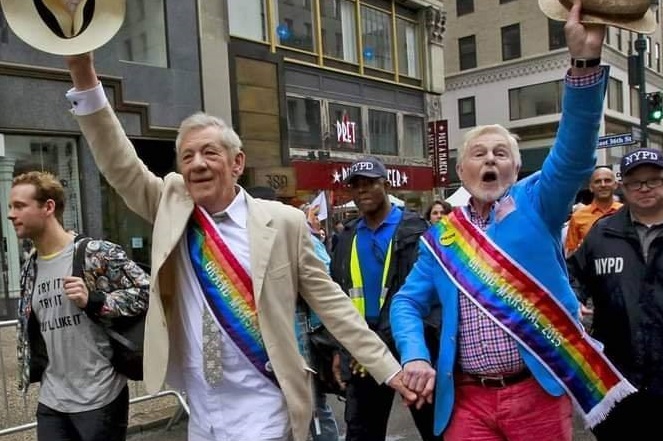 . .
Where Do Gays Retire?
Mental Health Disparities in Older LGBTQ Populations: Research Roundup
Today Show: Four Famous
Old Gay Guys
Same Sex Couples Tell Us What it's Like
to be Legally Married
Gail and Audrey: Unexpected Love Story
Video Talk:
Old Gays
Share Their
Coming Out
Stories
AARP Pride:
LGBTQ
Advocates
See Hurdles
Ahead
Lessons on Resilience From
LGBTQ Elders
LGBTQ Senior
Experience
Queer Elders Tell Us
About the Greatest Loves of Their Lives
Gay Retirement Guide For Fabulous LGBTQ
Financial Planning
The gravity of this problem was even
acknowledged on the federal level when,
in 2001, the
US Office on Ageing recognized that LGBTQ
elders are underserved by the federally
funded programs that receive support
through the Older Americans Act to help
elders remain independent and in their
home environment and to prevent
unnecessary or premature institutionalization.
LGBTQ elders are vulnerable in another
important area as well. Being closely
linked with income, health status, and
the availability of caregivers, living
arrangements are an important indicator
of well-being among older persons. The
US Census Bureau reports that older
persons who live alone are more likely
to be in poverty than older persons who
live with their spouse. Needs
assessments of LGBTQ elders in Los
Angeles, Milwaukee, New York
City, San Francisco, and elsewhere have
found that LGBTQ elders are far more
likely to live alone than heterosexual
elders. LGBTQ elders are also less
likely to have children than their
heterosexual counterparts. Since life
partners and children play an important
role in caregiving, many LGBTQ elders
become reliant on formal caregiving
services sooner than elders who can turn
to family members and partners for
informal support. LGBTQ elders who are
partnered must contend with an array of
discriminatory practices that arise from
the lack of formal recognition of their
personal relationships. LGBTQ couples
face unequal treatment in hospital
visitation, health decision making,
nursing care policies, Medicaid
regulations, Medicare and Social
Security coverage, pension and tax
regulations, housing rights, and a host
of other issues that fundamentally
affect their financial security, health
status, and quality of life.
[Source: Funders for Lesbian and Gay
Issues, Report on LGBTQ Elders in
America, 2004]
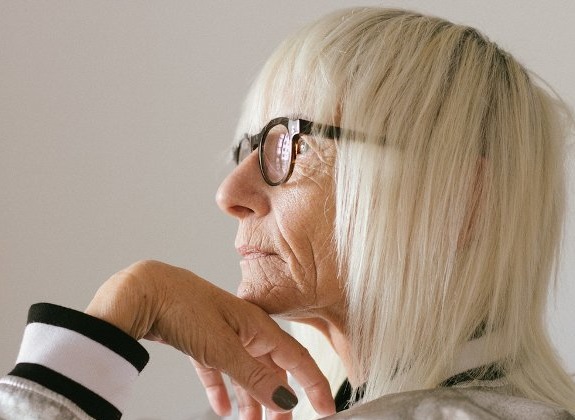
LGBTQ Celebs in Their 50s Who Are
Getting Better With Age
What it's Like to be a Gay Man at 60
LGBTQ Elders Show Resiliency Despite Barriers
Older Lesbian Couple: Happy for 30 Years
Bisexual Elders
Williams
Institute Report: LGBTQ Aging
Gay and Bisexual Men Enjoy Active Sex
Lives in Their 70s, New Study Reveals
“The Old Gays” are
Teaching us How to Get the Most Out of
Life on TikTok
At Age 90, Kenneth Felts Comes Out to
His Family
Controlling Complications
and Aging Gracefully with HIV
Gen Silent: LGBTQ Aging Documentary
LGBTQ
Seniors: The Joy of Being Out
University of North Dakota: Resources
for the Aging LGBTQ Community
Info:
LGBTQ Retirement Strategies
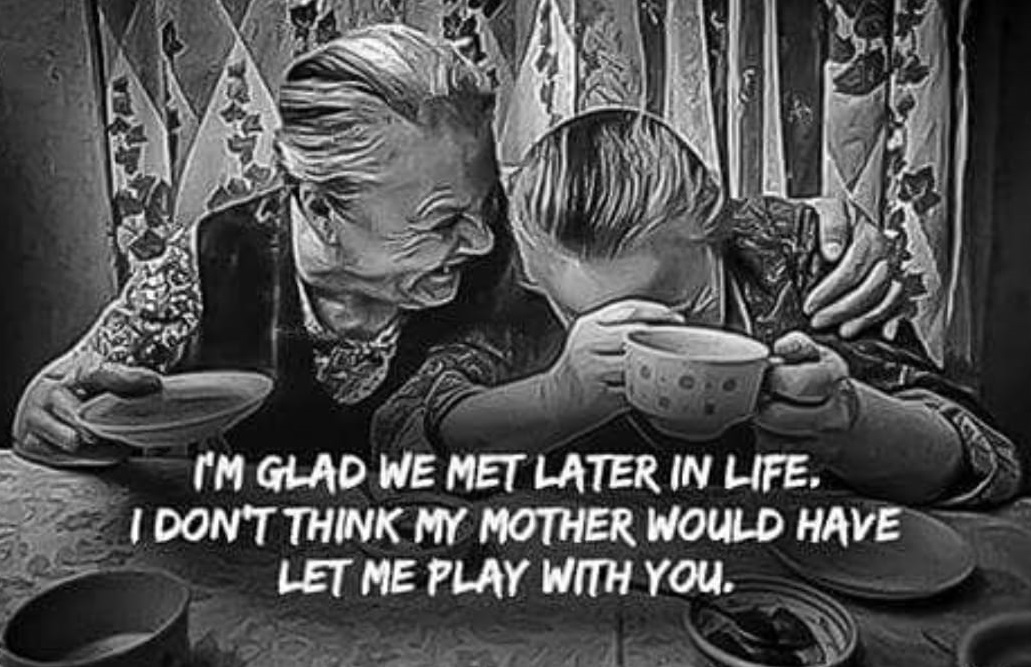
Gay Men More Sexually
Active in Old Age, Study Reveals
Stonewall Generation Shares Perspectives
At 60 Years Old, I Became
Invisible: Getting Old as a Gay Man
Stinks
Black and
Gay in New
Orleans in
the 60s
Aging in
Equity: LGBTQ
Elders in
America
Frightening and Encouraging: Being an
Older LGBTQ Person
Video:
Silent
Pioneers
Ageism Takes Heavy Toll on LGBTQ Seniors
Photos: Trans Elders Who Have Survived
Things
Older Adults Can Do to Stay Connected
and Overcome Isolation
Gay and Lesbian Association of Retiring
Persons
Advocate:
No One Will Care for LGBTQ Seniors But
Themselves
HOME
QUEER CAFE
│ LGBTQ Information Network │ Established 2017
|